Druid Hill / The Mechanical Riverfront Kingdom Clark Ashton (2020)
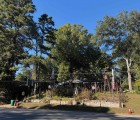
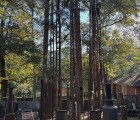
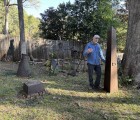
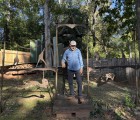
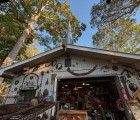
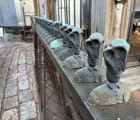
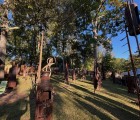
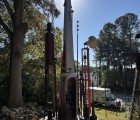
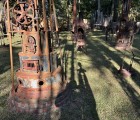
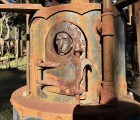
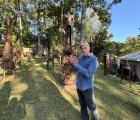
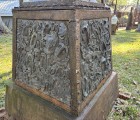
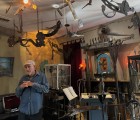
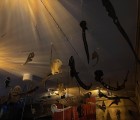
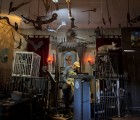
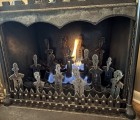
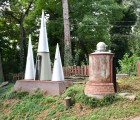
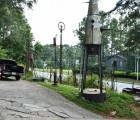
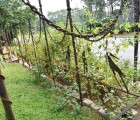
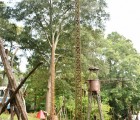
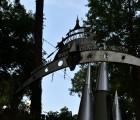
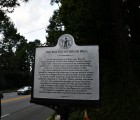
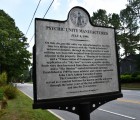
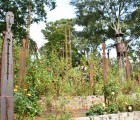
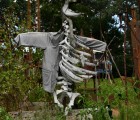
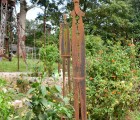
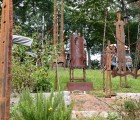
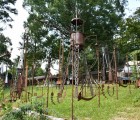
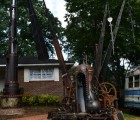
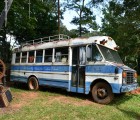
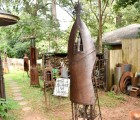
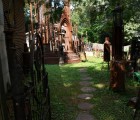
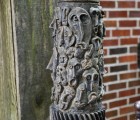
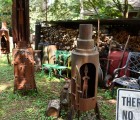
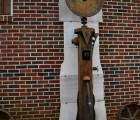
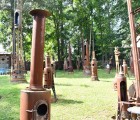
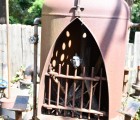
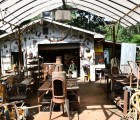
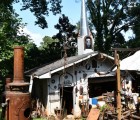
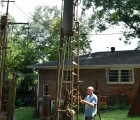
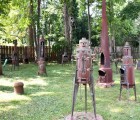
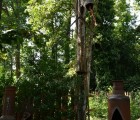
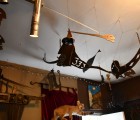
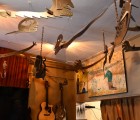
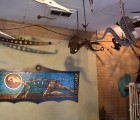
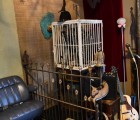
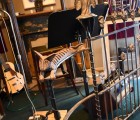
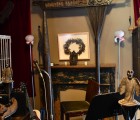
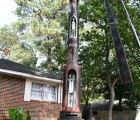
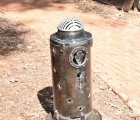
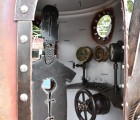
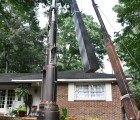
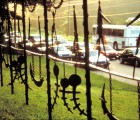
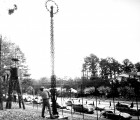
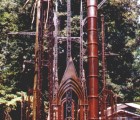
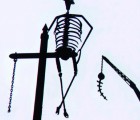
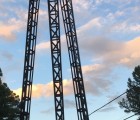
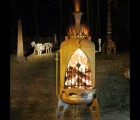
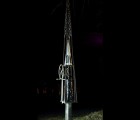
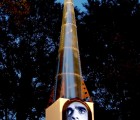
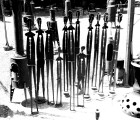
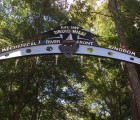
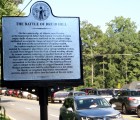
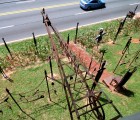
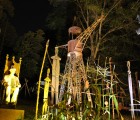
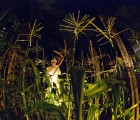
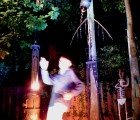
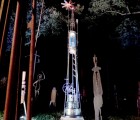
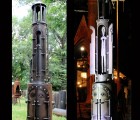
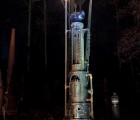
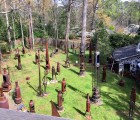
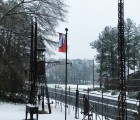
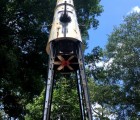
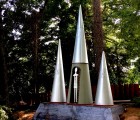
Extant
3162 N. Druid Hills Road , Decatur, Georgia, 30033, United States
1984 to present
Ashton welcomes visitors to his home every day from 10am to 5pm. He can be contacted at clark@druidhill.org. Admission is free, but donations are appreciated.
About the Artist/Site
If you find yourself stuck in traffic on North Druid Hills Road in Decatur, Georgia (a small city in the Atlanta metropolitan area), you might get lucky enough to have sculptor and performance artist Clark Ashton give you “the day off.” Ashton, born in Augusta, Georgia in 1958, learned to weld in high school and, though he had no formal art training, began wielding that skill to create sculpture in 1989. To supplement his artistic practice, Ashton enrolled at Georgia State University where he received a B.A. in anthropology followed by an M.F.A. in sculpture. He went on to teach sculpture at The Georgia Institute of Technology, The University of Tennessee at Knoxville, and The State University of West Georgia. In addition to creating sculpture, Ashton also produces films (Mechanical Riverfront Kingdom which premiered at DOCUTAH in 2015 and The Ballad of Druid Hill which won Best Short Music Documentary at the 2019 Barebones International Film Festival), paints, and performs with the band The BooHoo Ramblers.
Sculpture surrounds Ashton’s home environment, and throughout the 35 years of its creation, the site has undergone many phases of development. Presently, Ashton’s primary concern for his work has turned to preservation “of the physical and conceptual aspects of the art environment, along with the extensive history of the land itself,” says the artist. Acting as a steward to the landscape on which the site exists, Ashton considers the physicality and legacy of Druid Hill, the topographical feature on which the site exists, as the predominant element creating the environment. Ashton has completed detailed historical research regarding Druid Hill, beginning with the Native American Creek expulsion and the Georgia land lottery of 1821. His ongoing research (which will include 2000+ years of prehistory) will be featured in a forthcoming book and film.
Secondary to the landscape is the sculptural environment The Mechanical Riverfront Kingdom, “consisting of all interior and exterior symbolic structures and artifacts (physical, conceptual, audible, visual, digital, etc.) created on Druid Hill, including but not limited to the assimilated and re-purposed Commuter Gallery,” says Ashton. The site consists of sprawling back and front yards populated with sculptural installations like “The Battle of Druid Hill,” an installation of 13 metal figures. The “battle” is described in a placard installed by Ashton on site:
On the eastern edge of Atlanta, near Decatur, at the homestead of John Clark Ashton Cornelius Farmer, empty shells of men were scattered on the southern slope, outflanked as corporate troops advanced from all directions. Hell bent on the accumulation of copious wealth, the raiders employed scorched earth economic tactics assisted by computer algorithms and a corrupt political system, as souls were stripped from the flesh of hard working citizens by remote control, rendering yet another form of servitude insidiously described as “freedom.” Honor, courage, and shame were now only quaint afterthoughts, as hearts and minds succumbed to the false promise of “The American Dream” only to submit to the reality of a rigged financial system. Meager positions were held by rebel fighters in a last stand for dignity as compliant digi-drones surrendered persons, papers, and effects into the hands of the new order. 2014
Ashton’s sloping front yard abuts the road (a.k.a. the “Mechanical River”) transporting the artist’s primary audience and features, among other works, Ashton’s installation Faith in Industry comprising three towering metal structures, The Sky Saw, The Control Tower, and The Sky Stitcher. Described by Ashton as “a site-specific sculptural installation designed to produce psychic unity using commuters as raw materials,” the elevated space (sitting about 30 feet higher than the street) serves as the backdrop to Ashton’s regular performance piece that promotes the passersby to passive participants. The ritual follows these steps: “the ‘consecration of Commuters,’ the ‘bearing of their burden,’ the ‘cutting of a psychic opening in the sky’, the ‘plucking of commuters’ souls,’ and then ‘stitching the sky back up.’” (See performance clips in the CBS Sunday Morning video below.)
Ashton describes his oeuvre–which includes hundreds of discrete sculptural objects–as examining “the two most powerful forces in the history of human culture, God and Capitalism” as well as “the nature of faith, power, value systems, and systems of belief.” Ashton’s sculpture and integrated performance piece serve as an intentional disruption to the normal work day of the folks driving by and emphatically infuse the prosaic act of commuting with creative energy. Ashton continues to create in the studio and welcomes visitors to his home every day from 10am to 5pm. He can be contacted at clark@druidhill.org.
*A note from the artist Clark Ashton regarding "The Commuter Gallery" referenced in the video below:
The Commuter Gallery is an archival reference that I no longer use and discourage its reference, as the term “gallery” infers a commercial interest, (which it is not and never has been). While at it’s inception, sculptures were randomly displayed for a commuter audience (hence the name), later developments incorporated the commuters as a medium in the artwork thereby changing their relationship to the work from passive observer to participant (regardless of their consent or lack thereof). At that point, it was no longer a “gallery” as such, but an all-inclusive installation reflecting mankind and our perception of our place in the cosmos. And even though it has taken some time for the name to dissipate from the dialogue, that name no longer, and for quite some time, has not conveyed the narrative that is presented by the much larger and more complex works that have emerged over the subsequent 30 years since that name’s origin.
Resources:
- www.clarkashton.org
- https://vimeo.com/212077339
- https://dekalbhistorycenterblog.wordpress.com/2018/11/14/in-the-kingdom-of-dreams-and-madness-clark-ashtons-druid-hill/
- https://www.atlantamagazine.com/news-culture-articles/clark-ashton-metal-art-museum-decatur-yard-mechanical-riverfront-kingdom/
- https://www.artsatl.org/clark-ashton/
Contributors
Materials
metal sculpture
Media
Druid Hill: CBS Sunday Morning Show, Oct. 1, 2000
Bill Geist of The CBS Sunday Morning Show visits Clark Ashton at his Commuter Gallery in October 1, 2000
Map & Site Information
3162 N. Druid Hills Road
Decatur, Georgia, 30033
us
Latitude/Longitude: 33.8130795 / -84.3031655
Nearby Environments


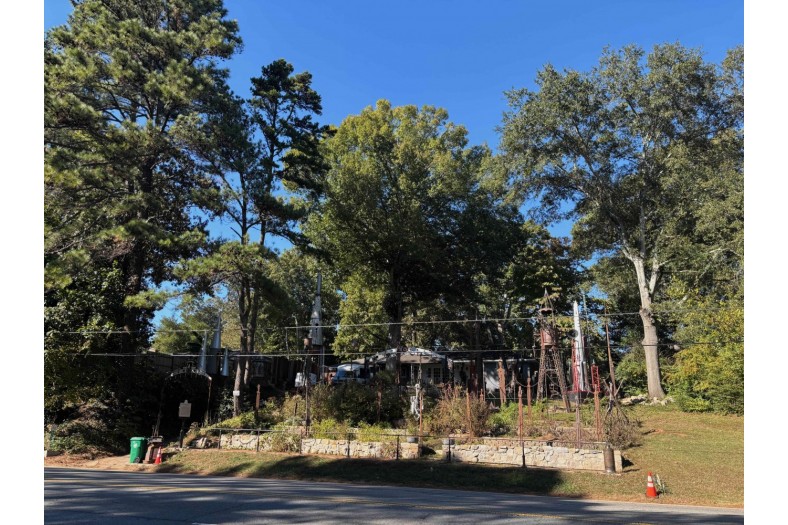
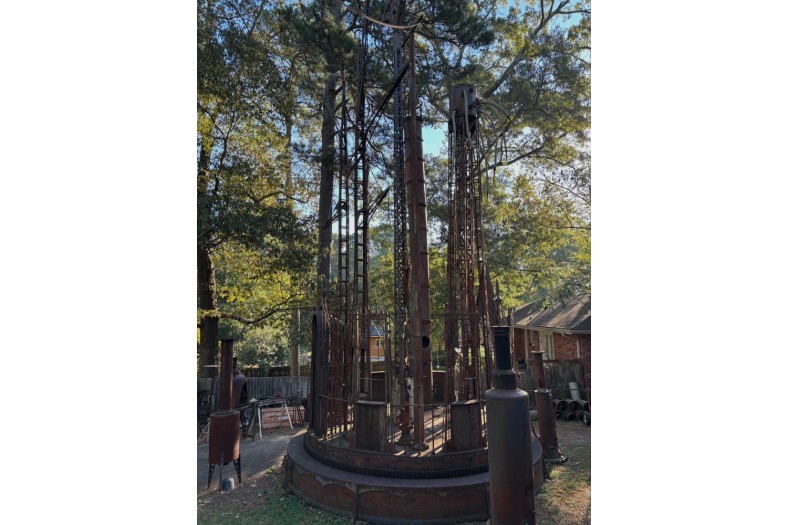
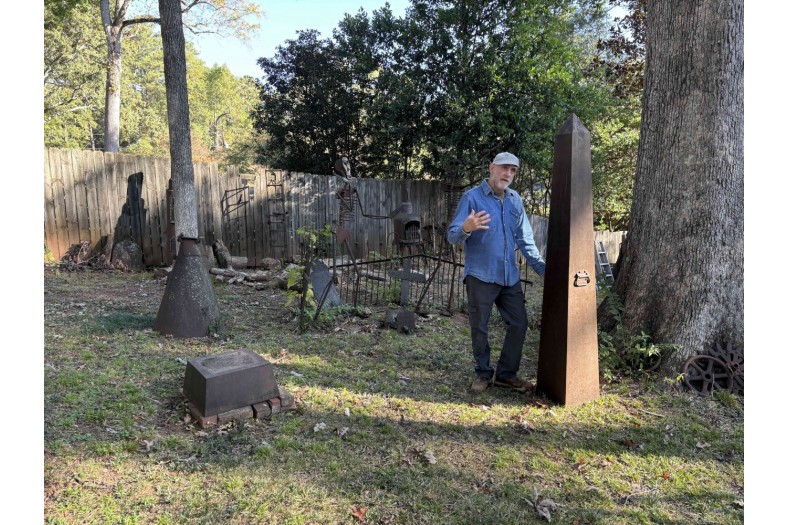
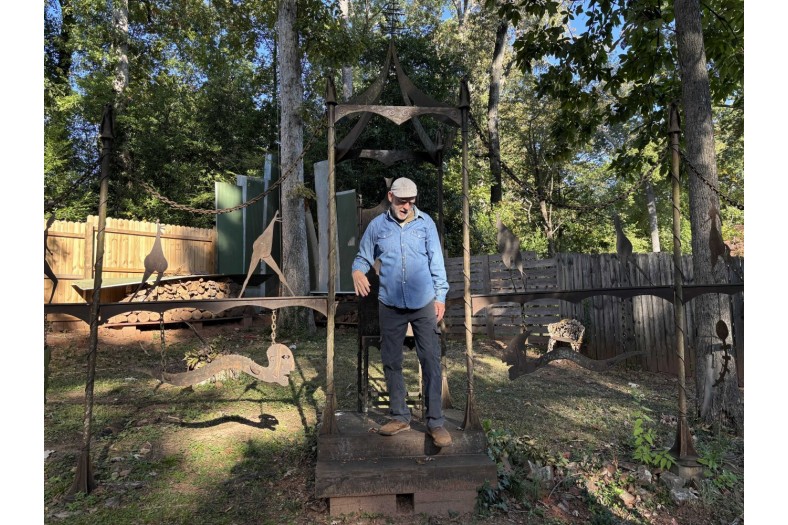
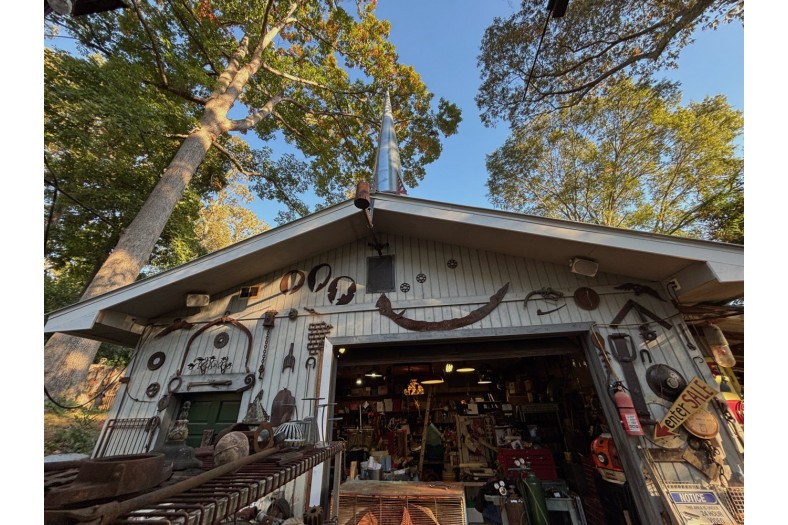
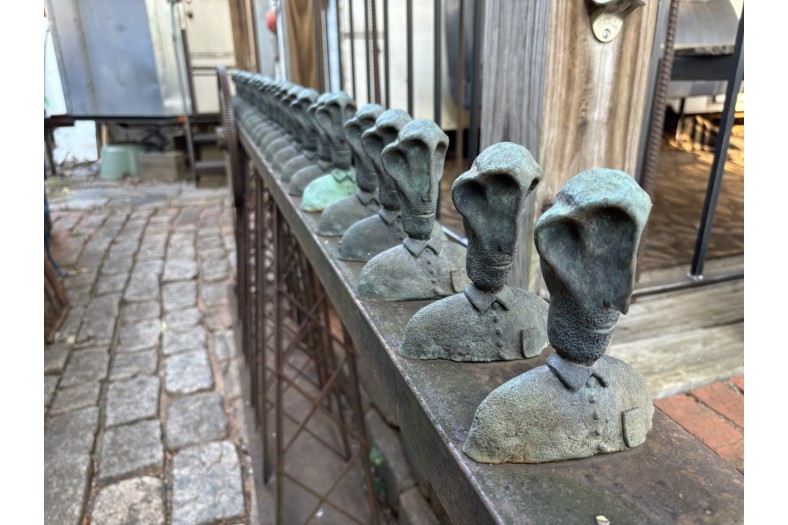
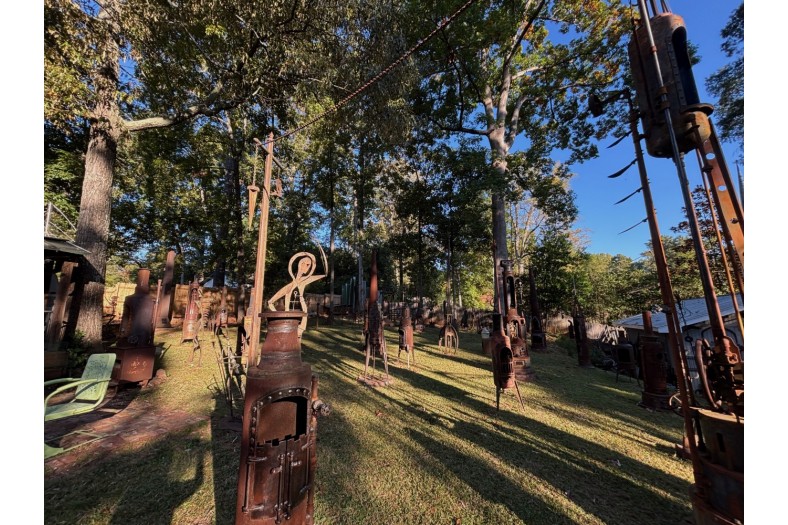
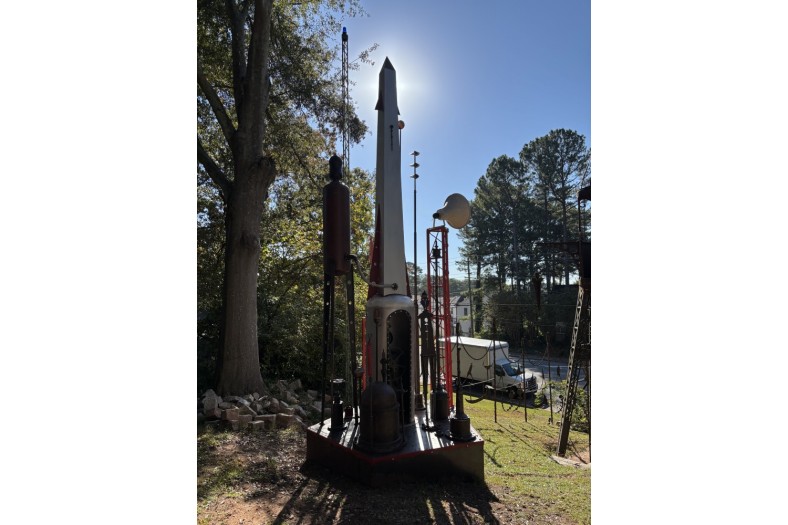
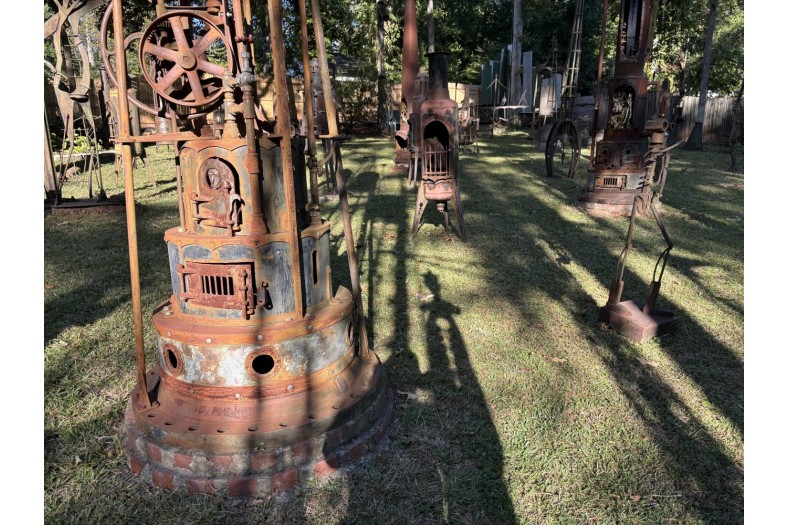
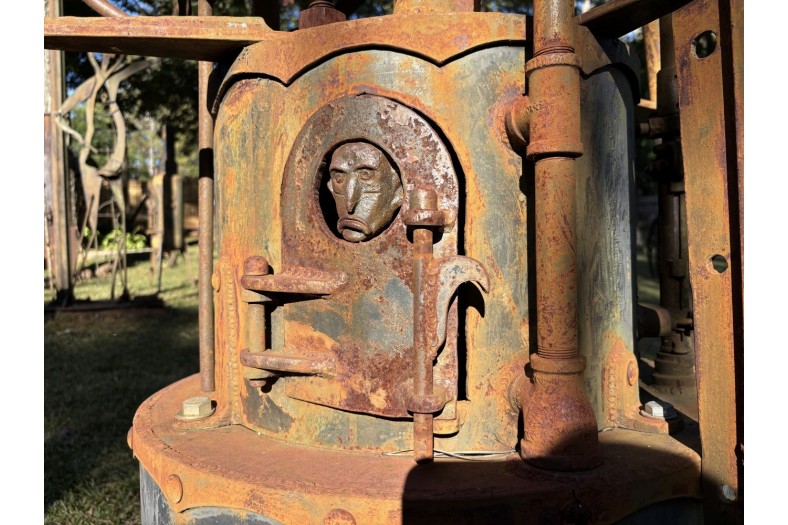
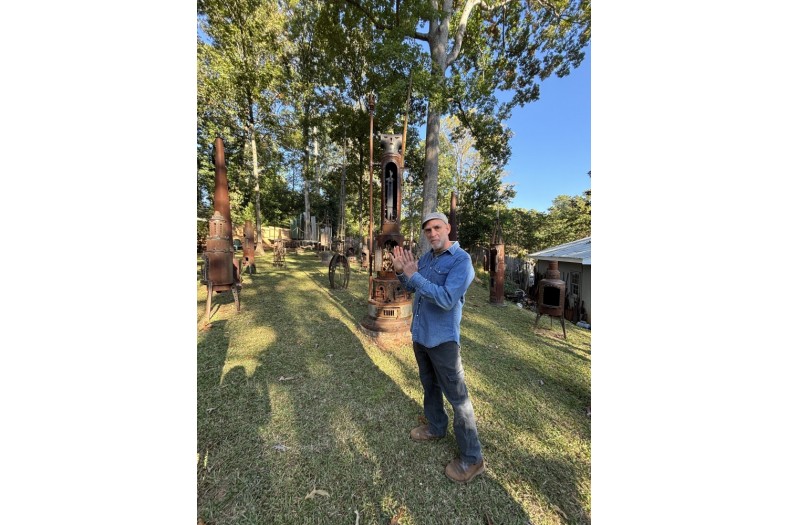
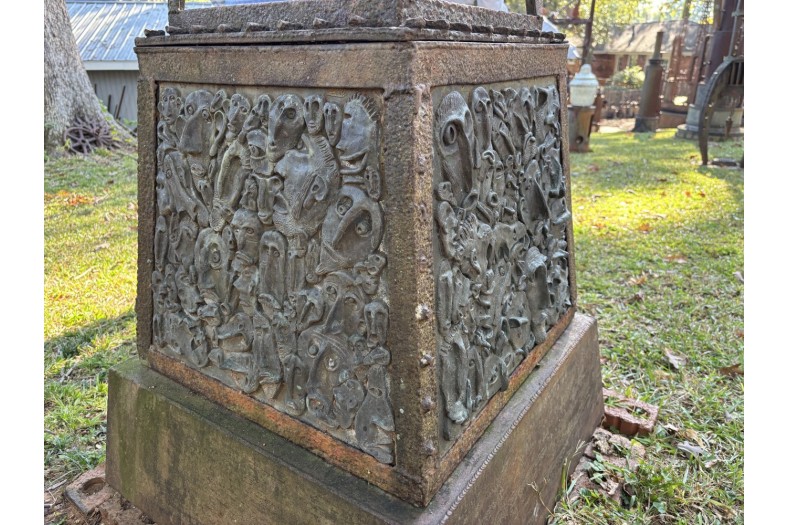
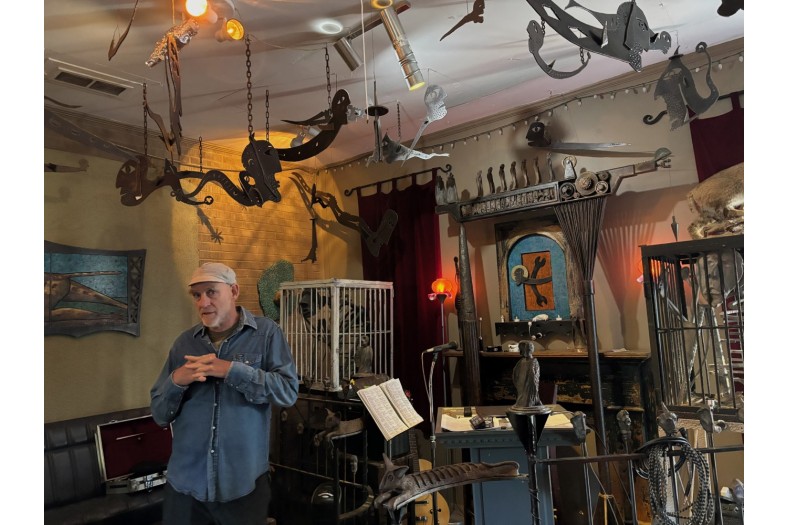
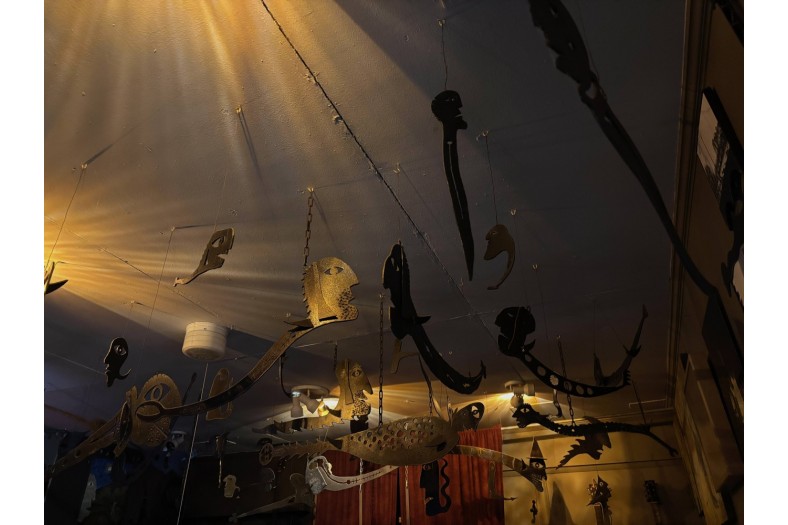
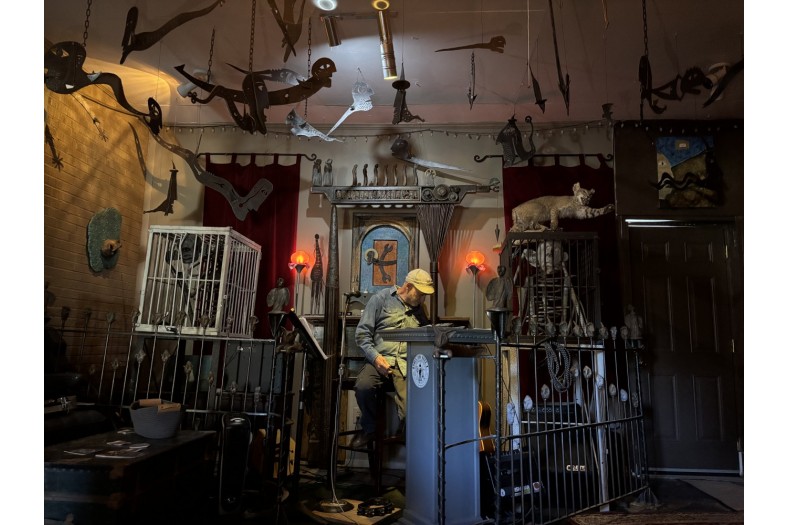
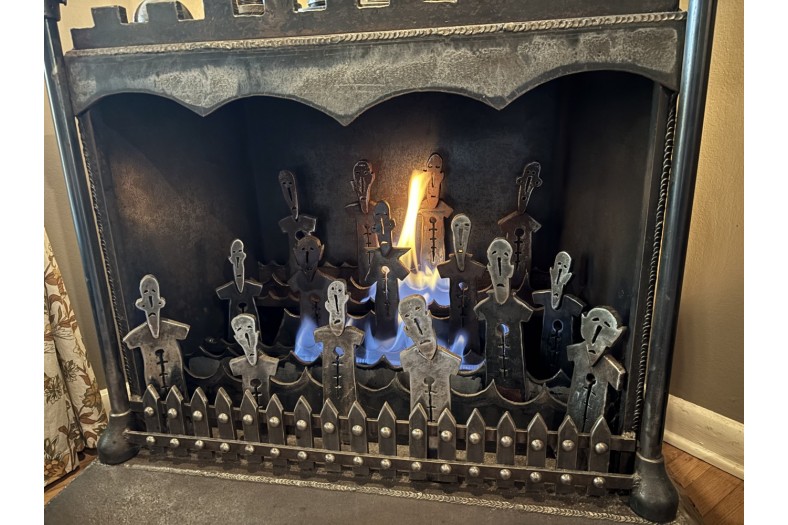
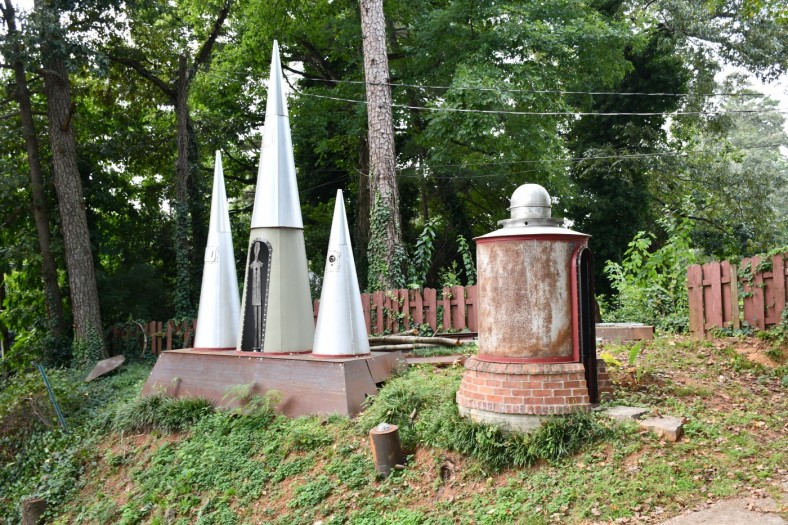
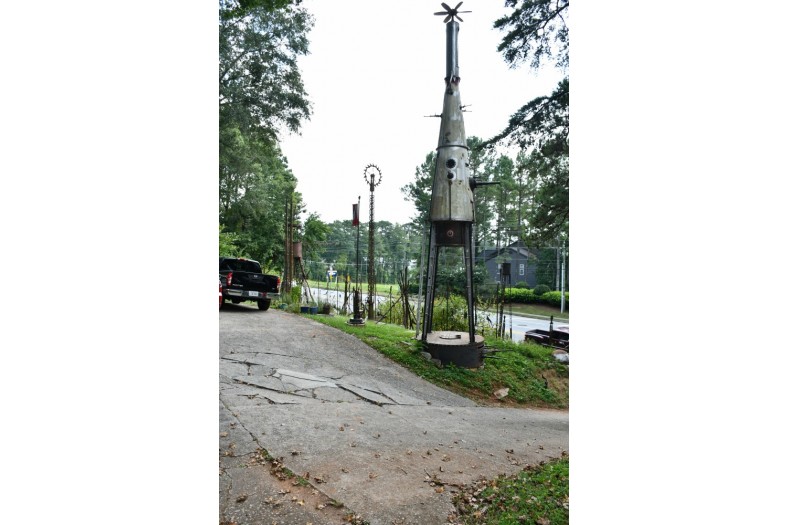
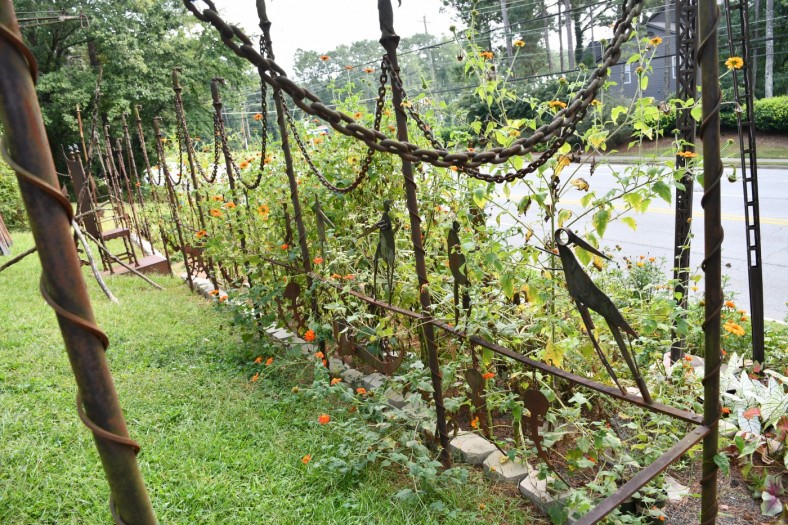
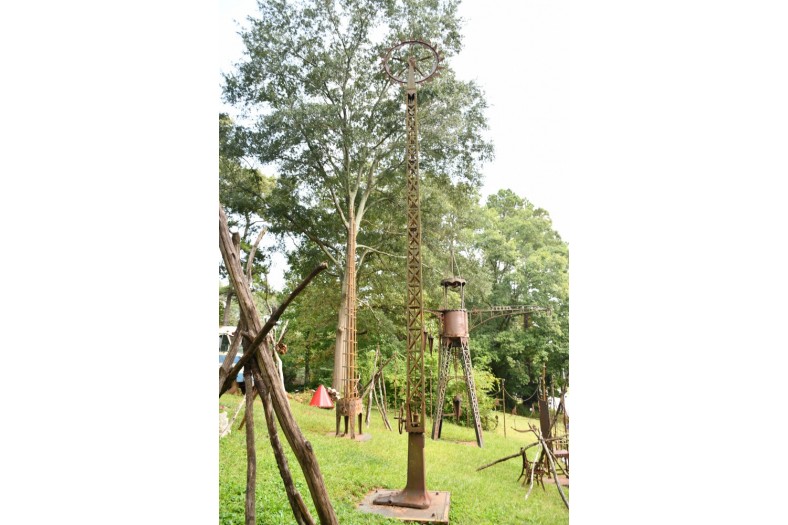
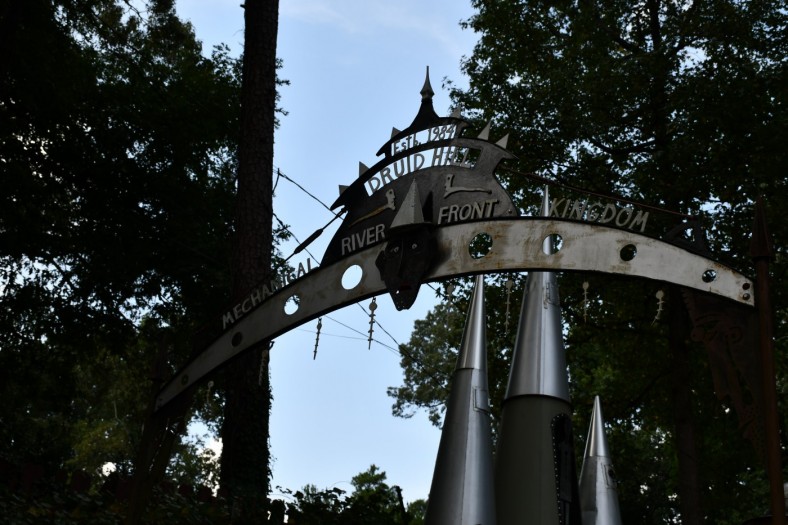
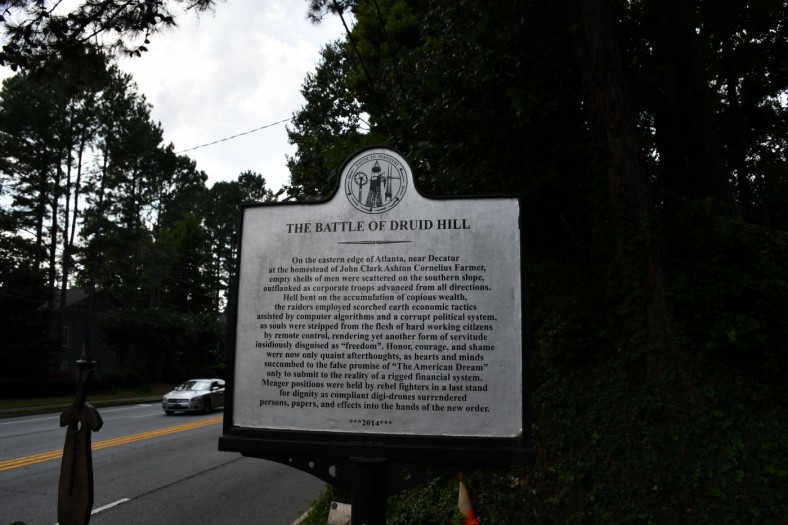
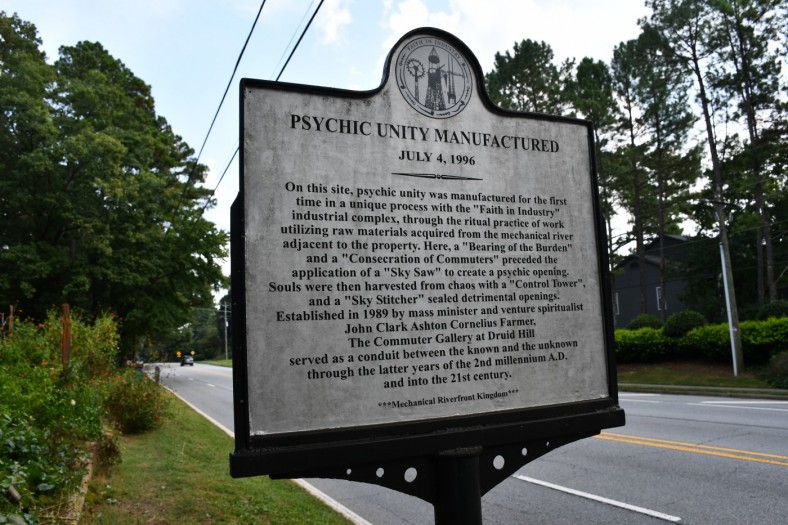
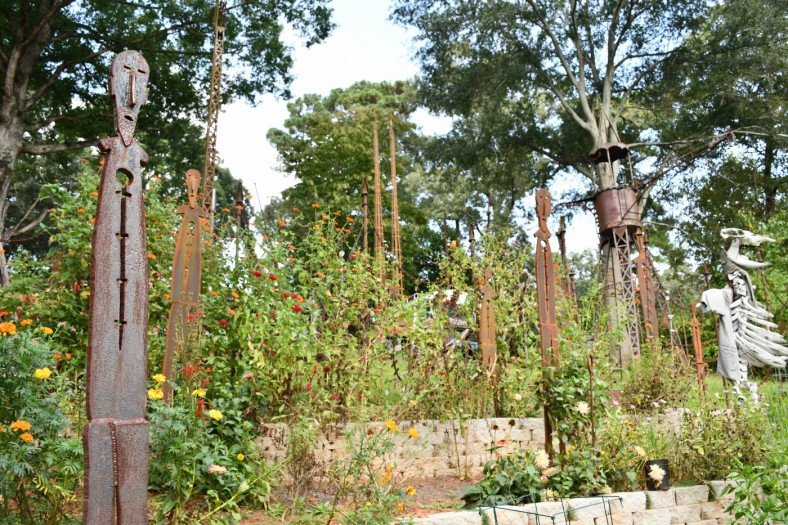
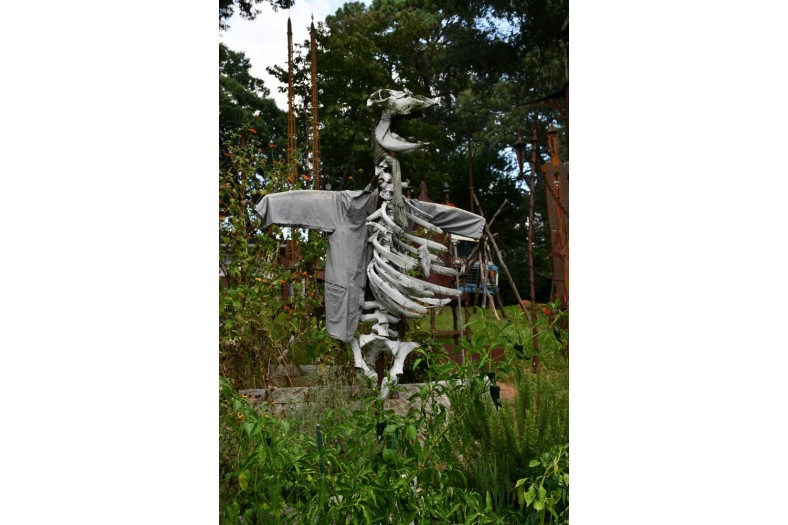
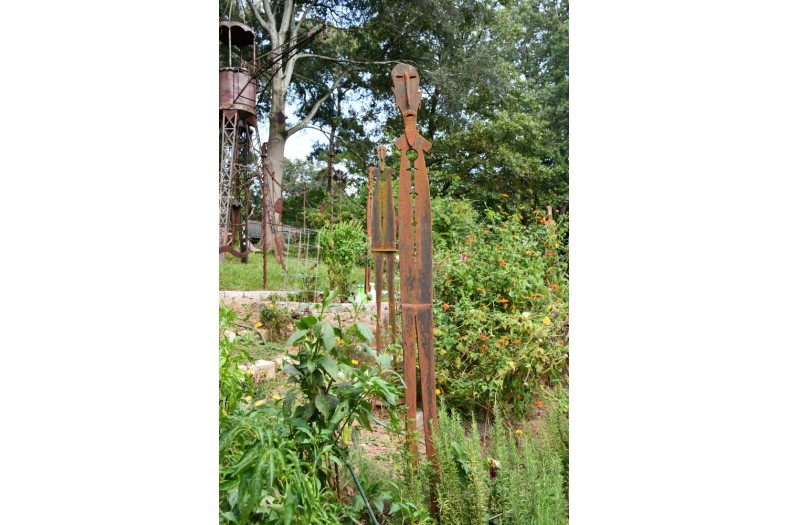
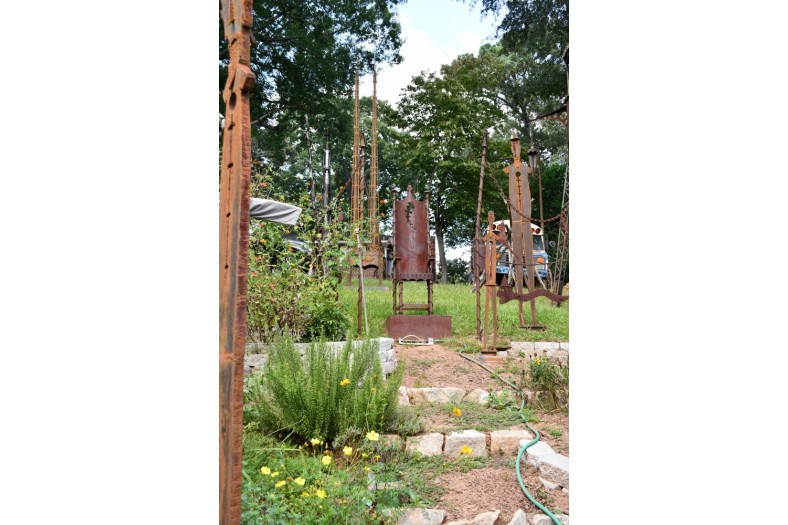
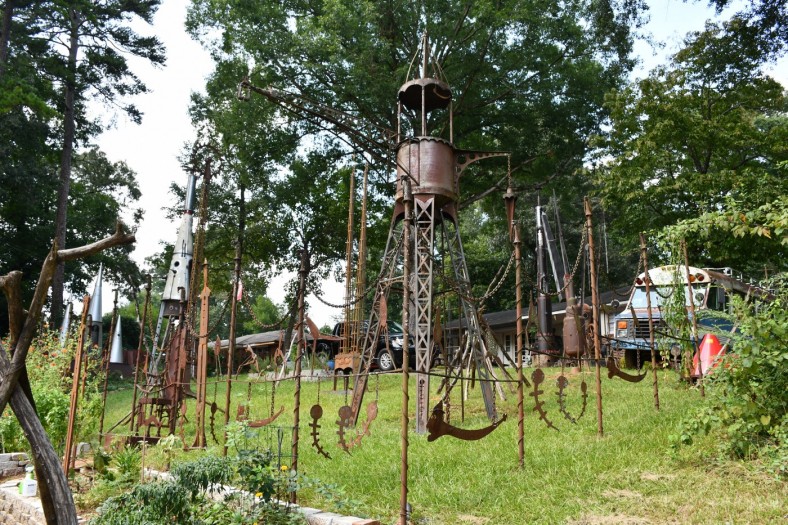
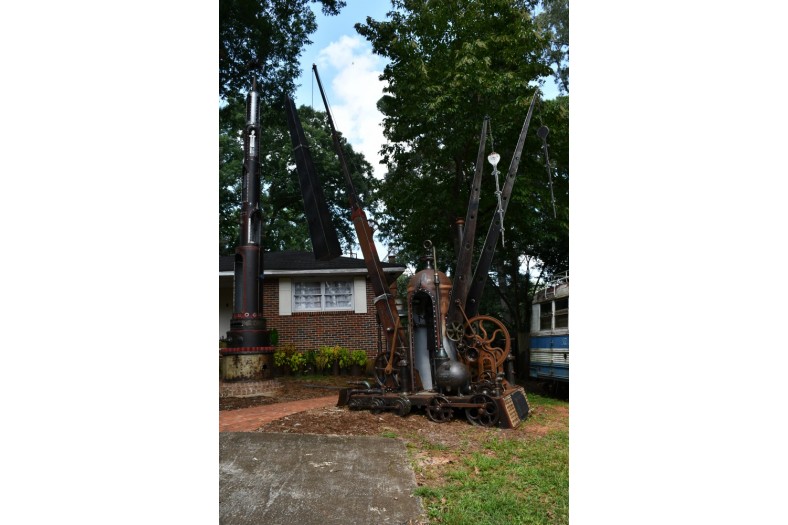
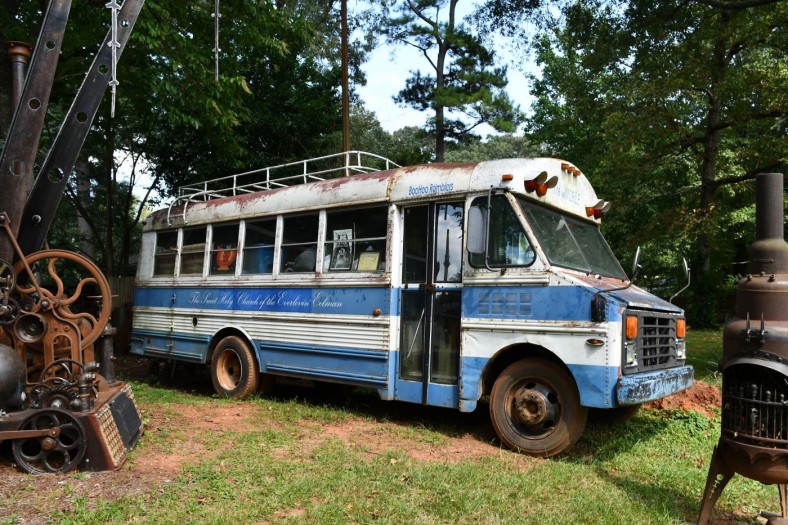
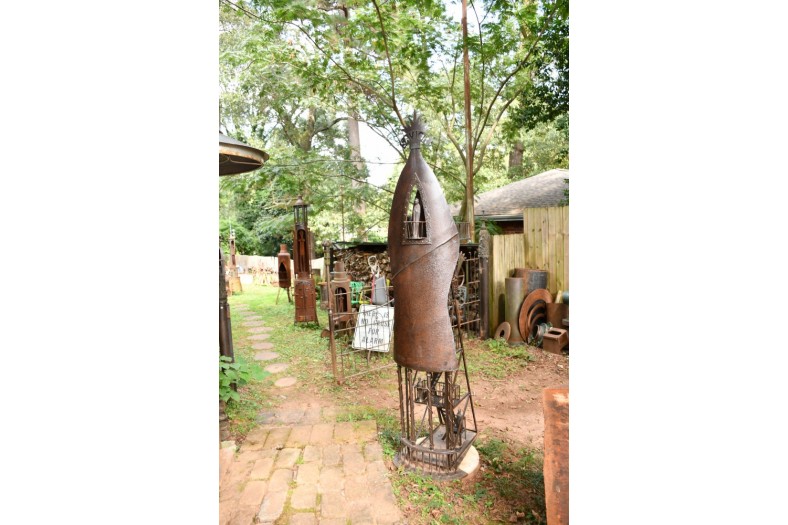
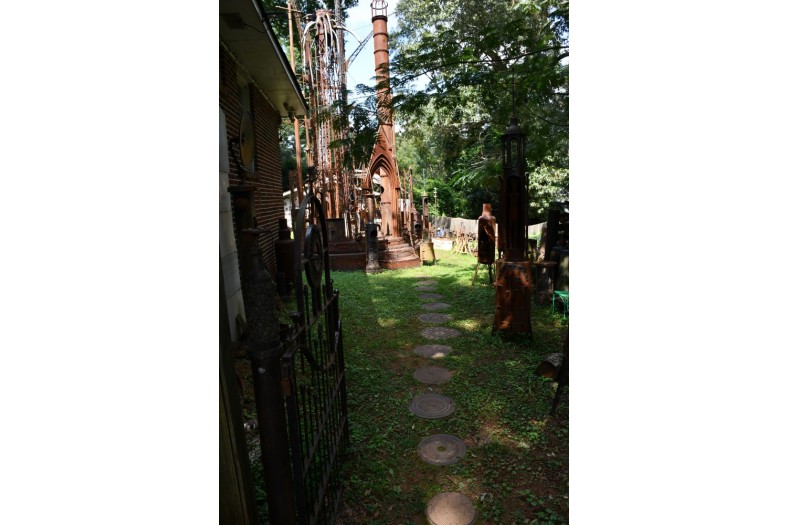
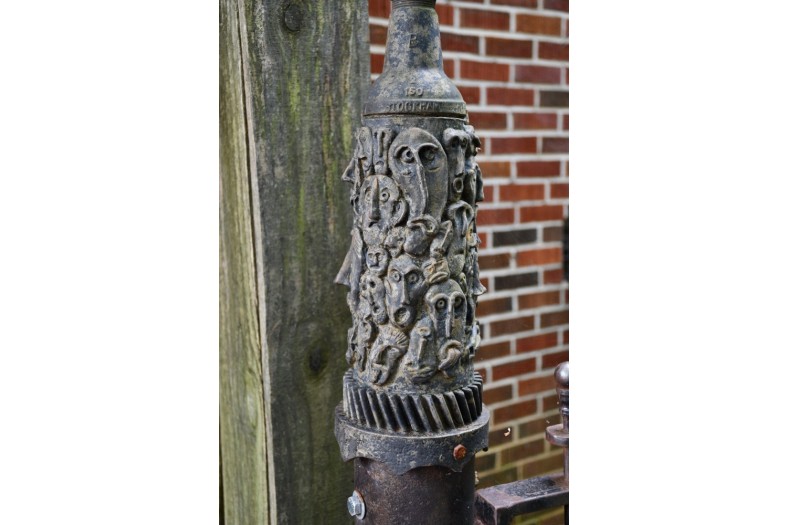
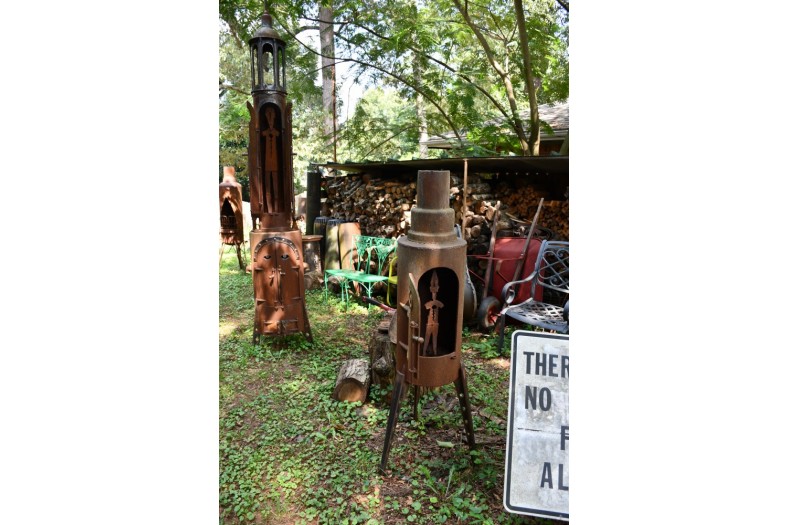
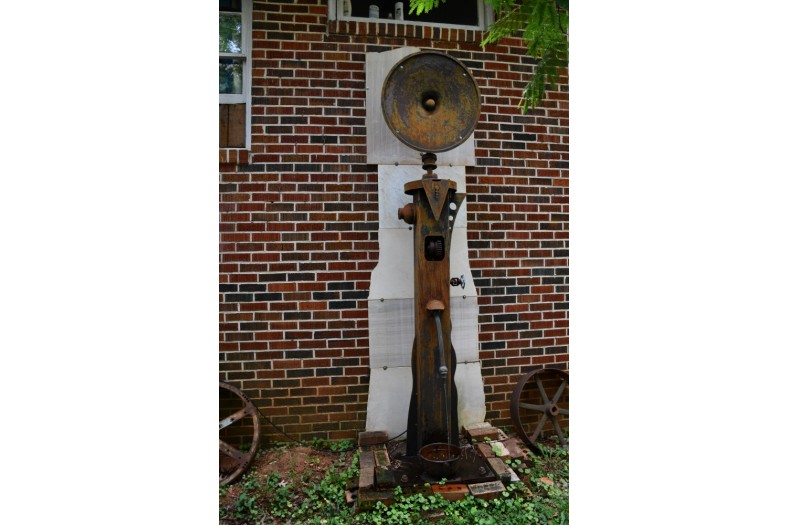
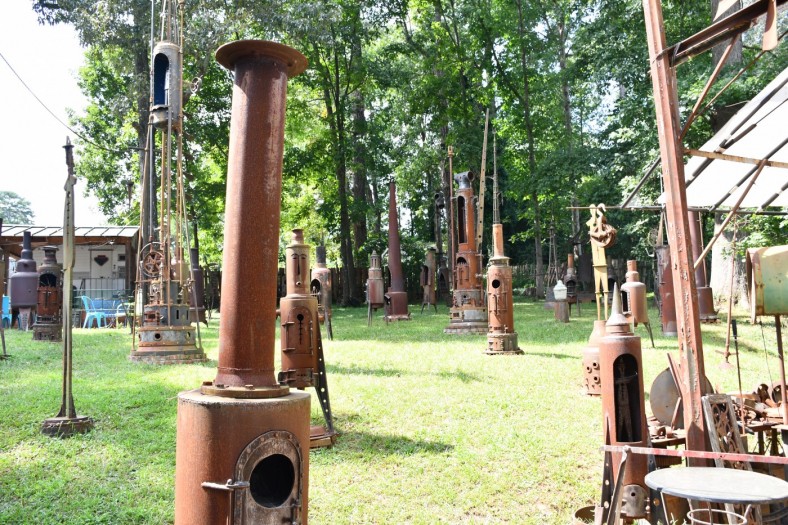
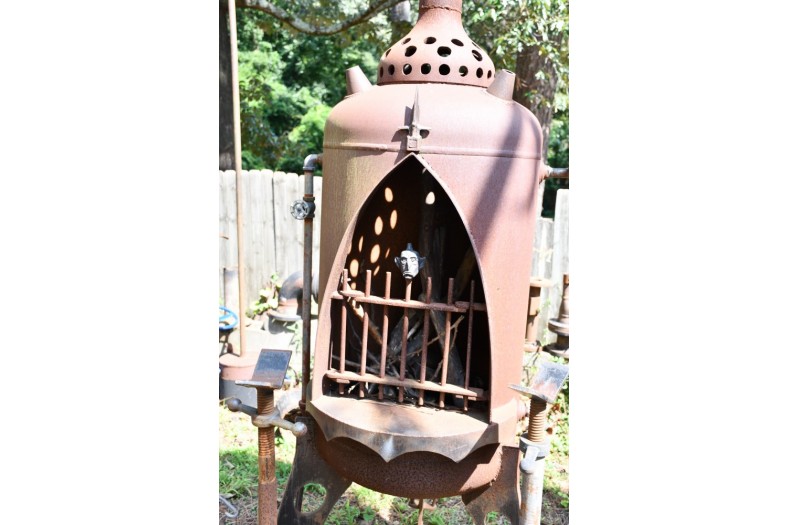
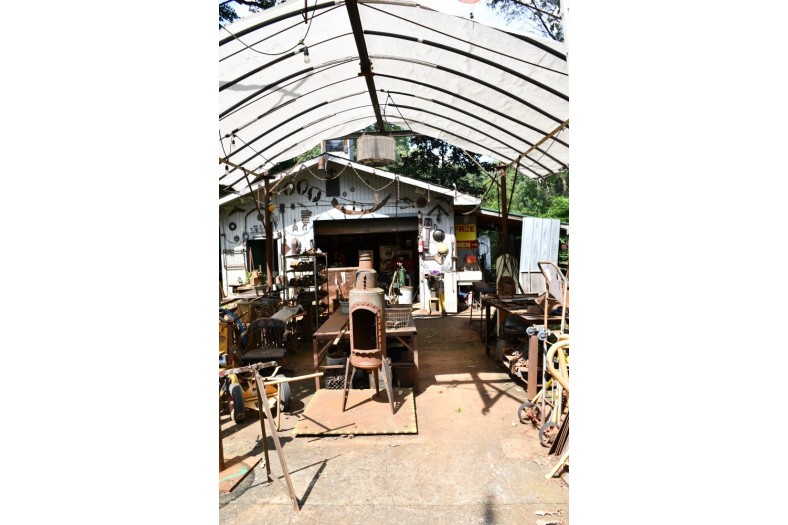
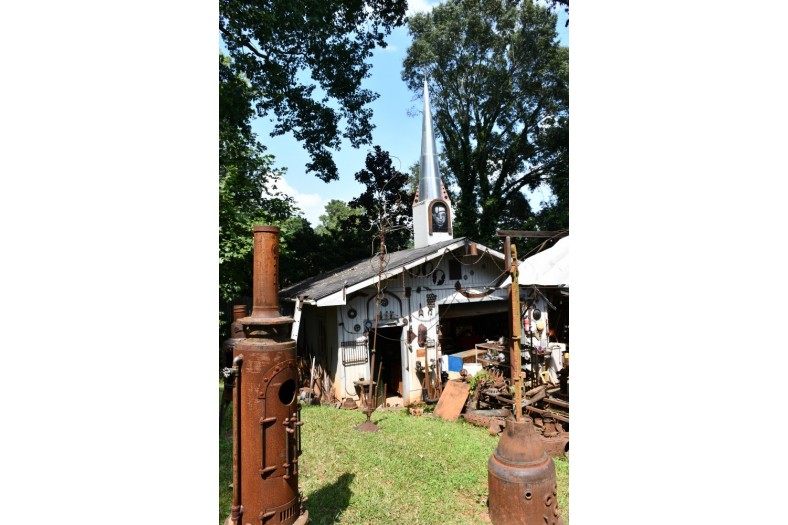
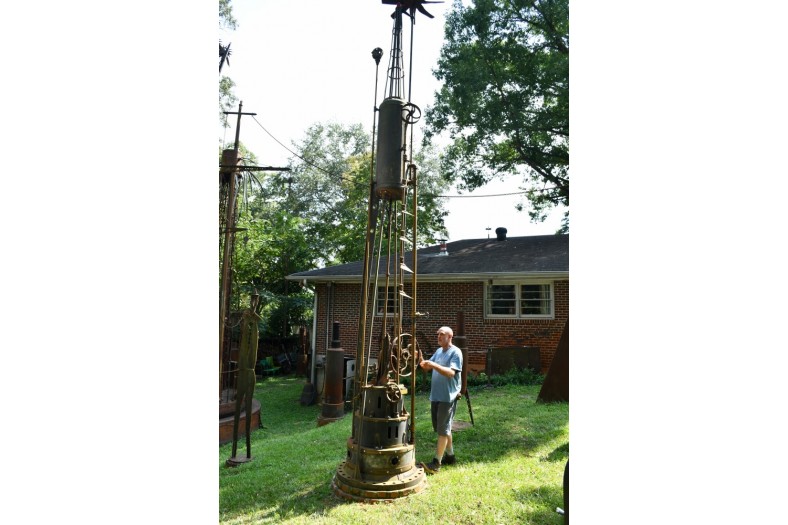
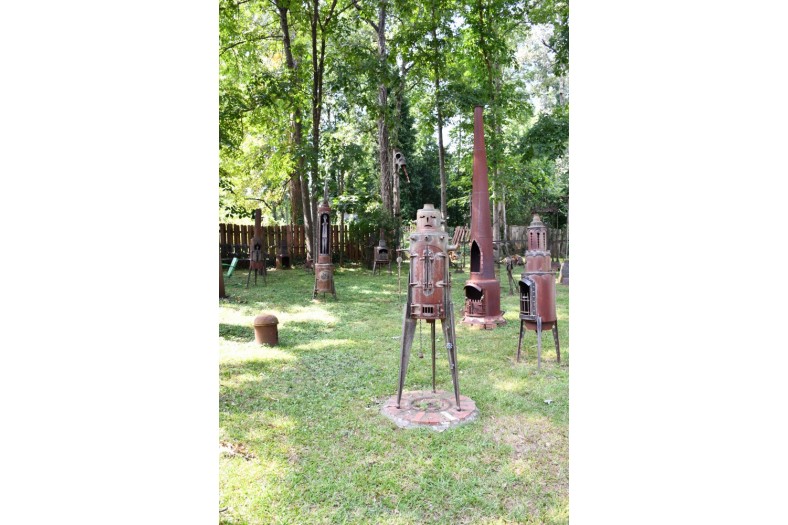
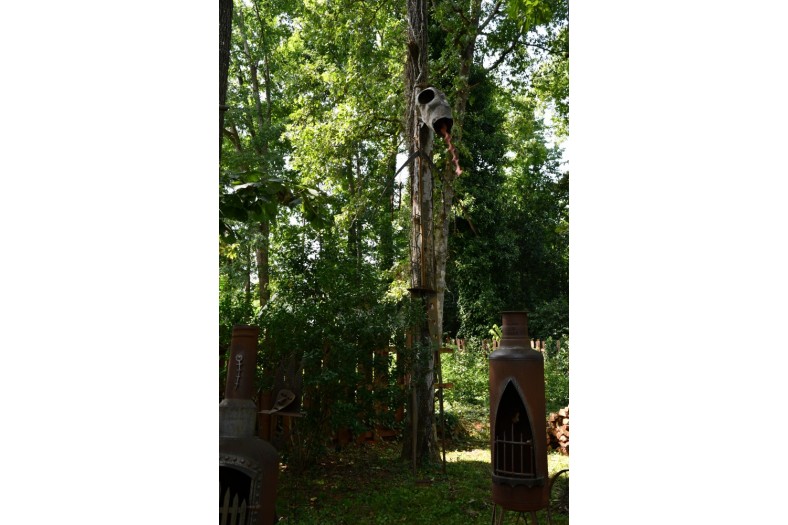
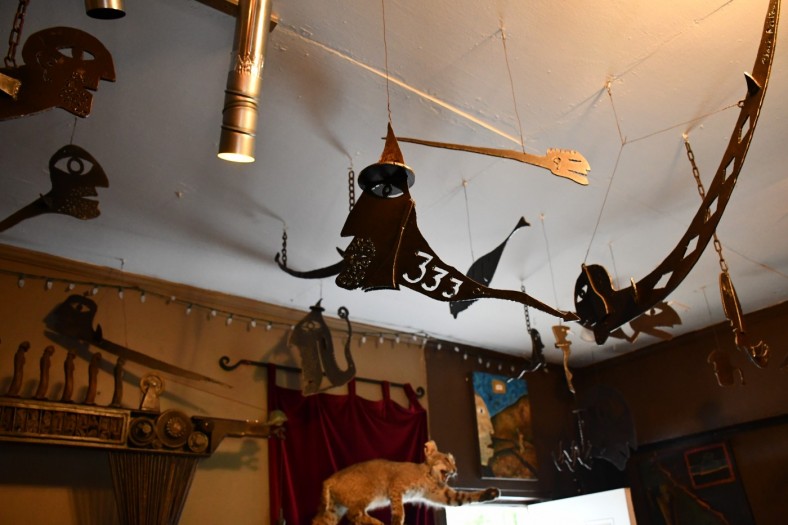
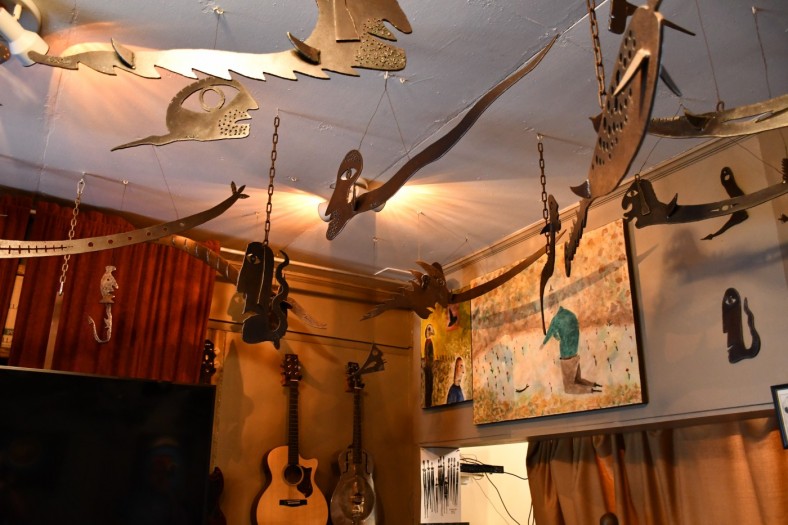
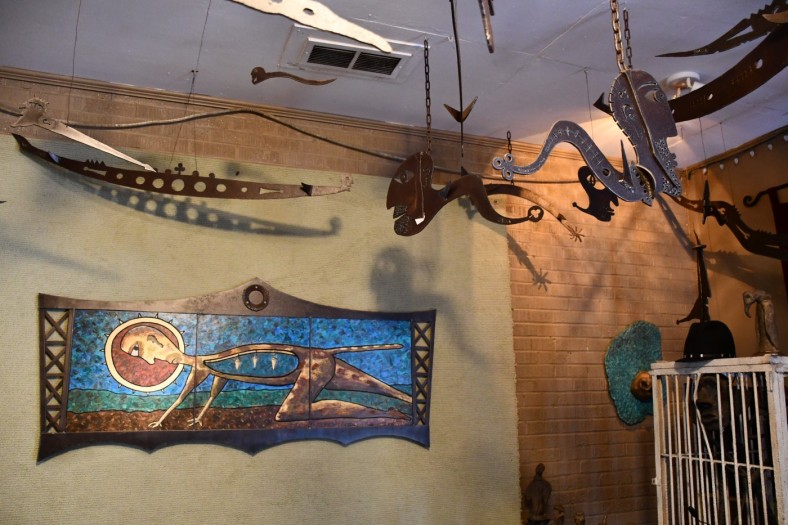
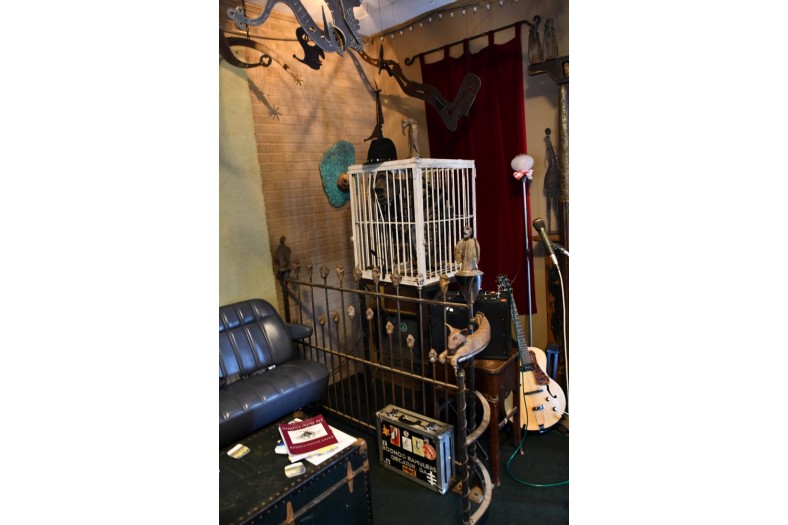
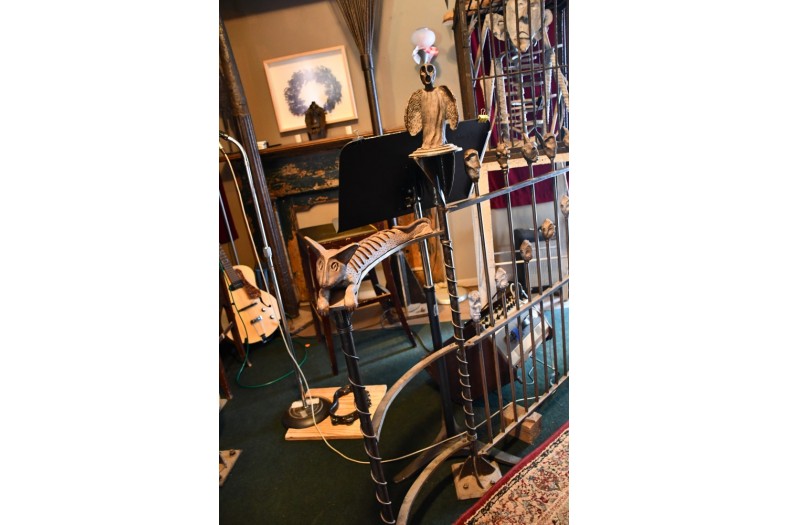
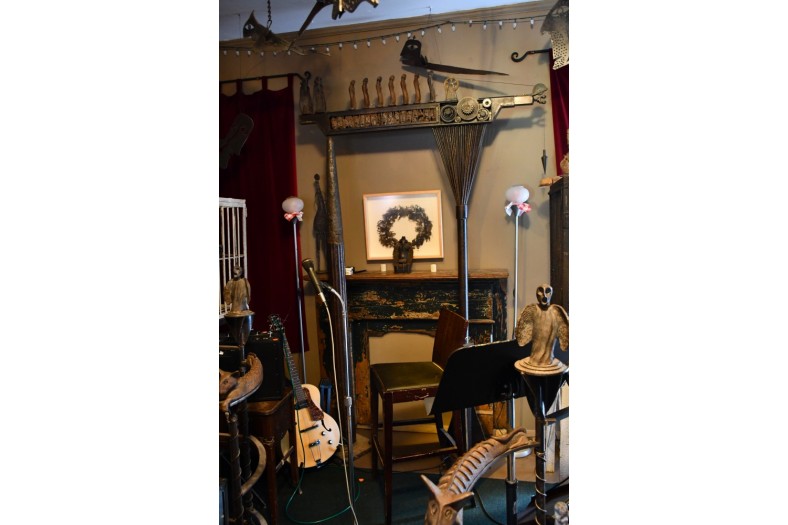
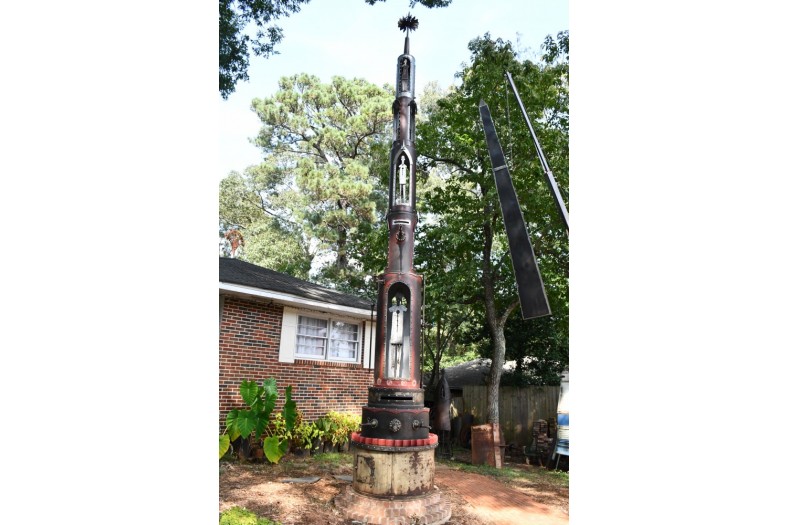
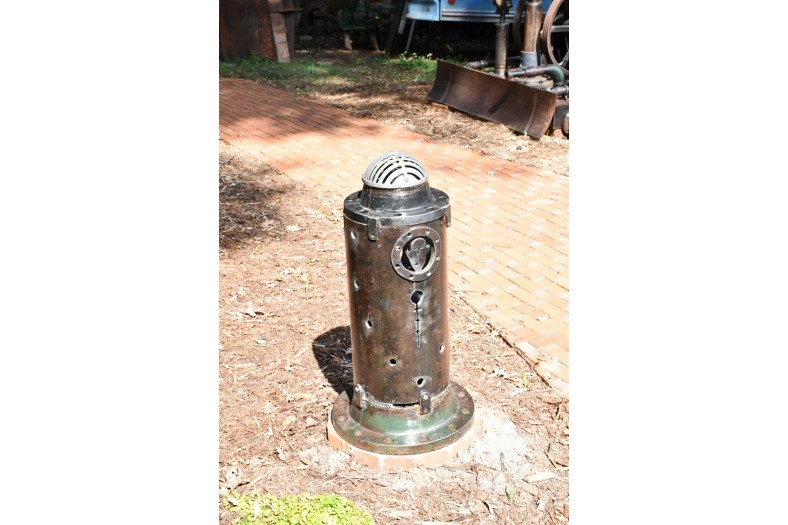
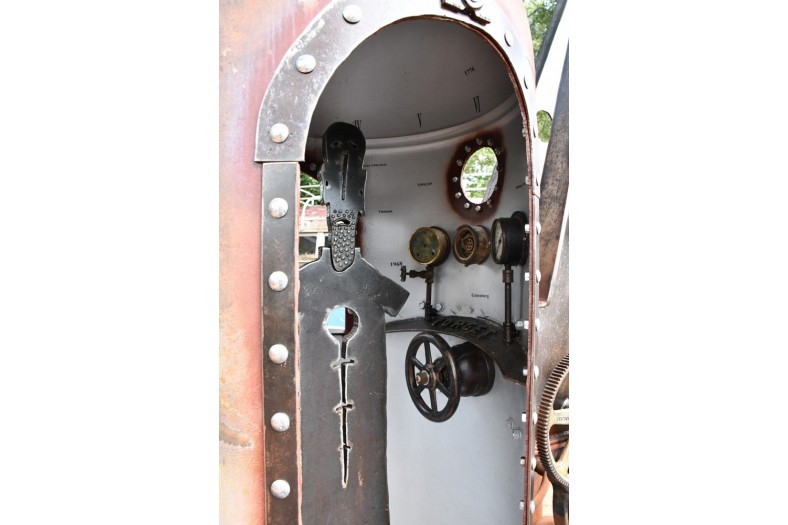
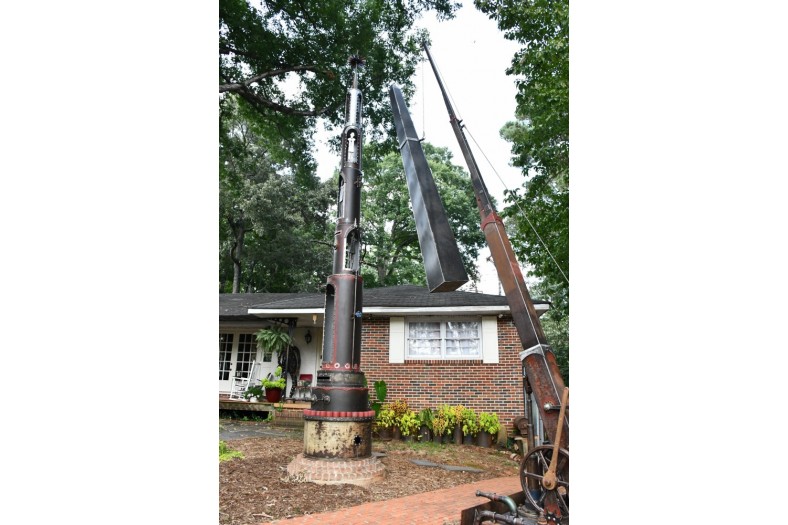
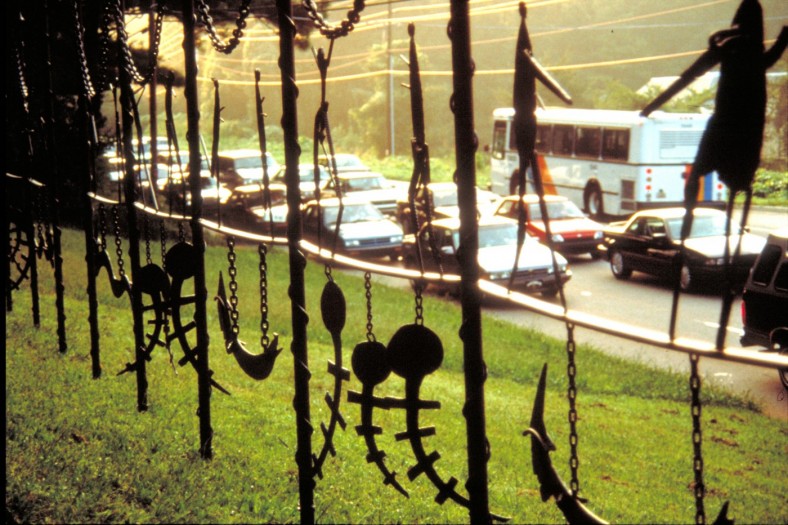
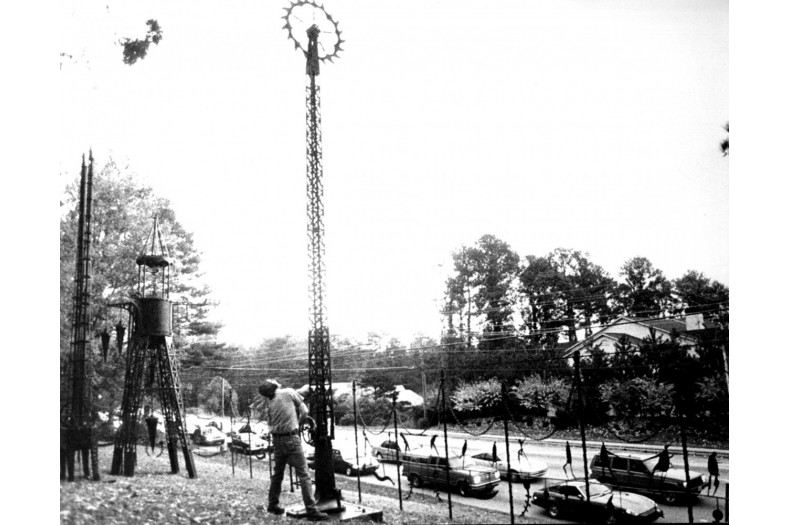
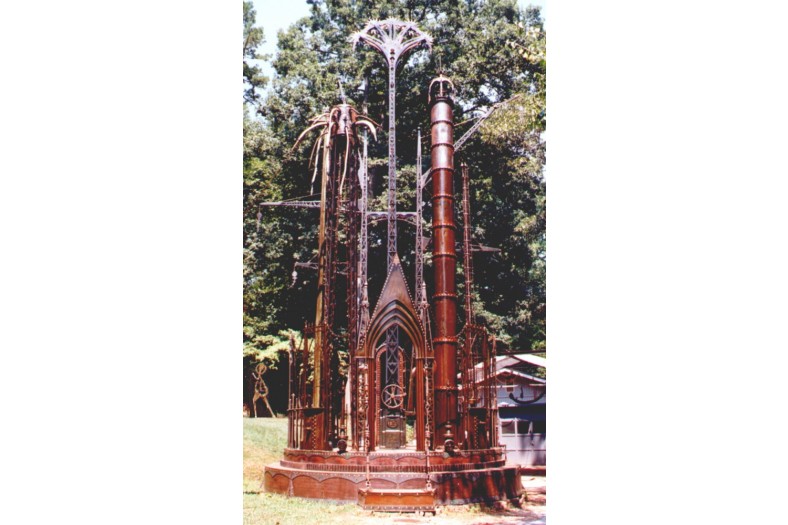
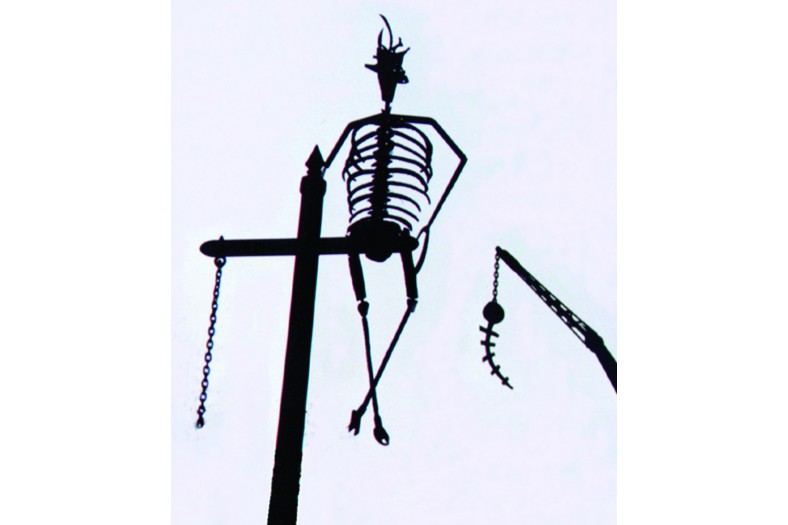
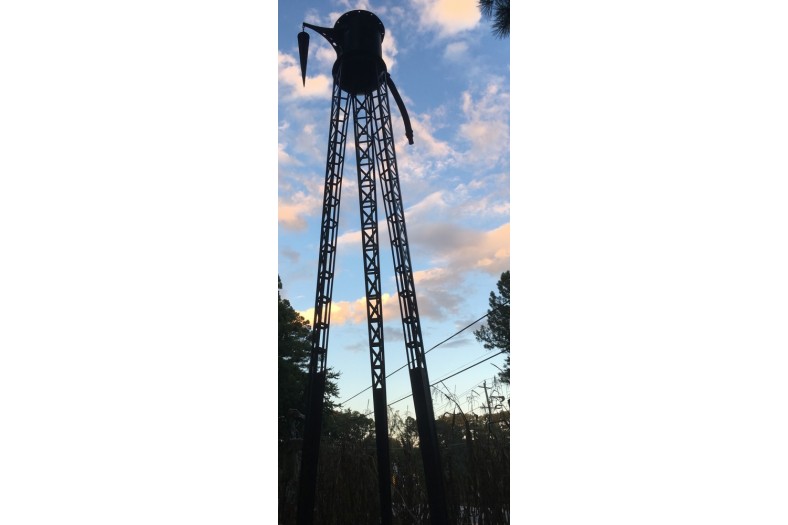
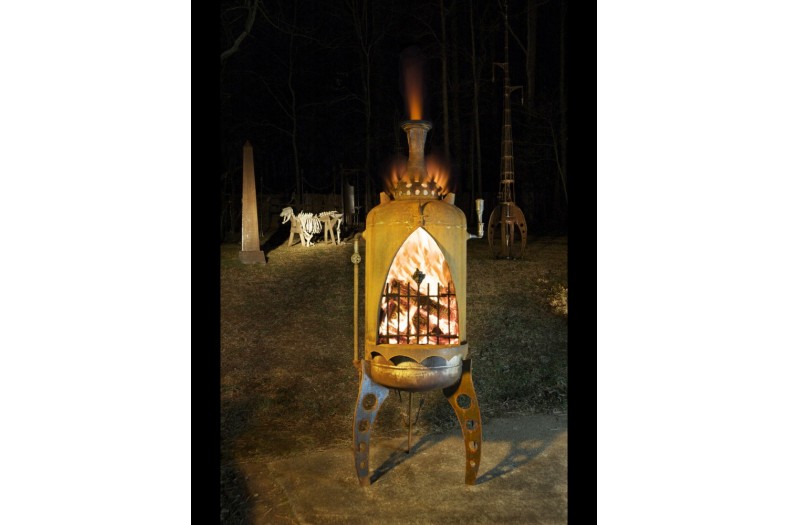
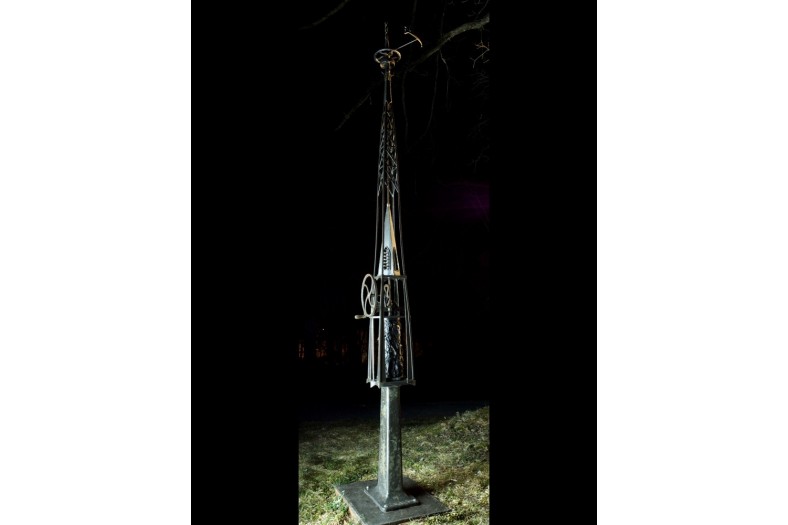
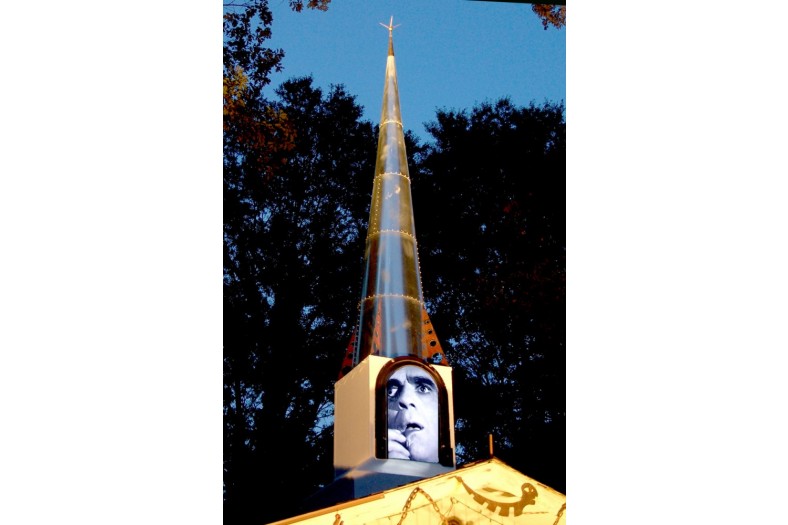
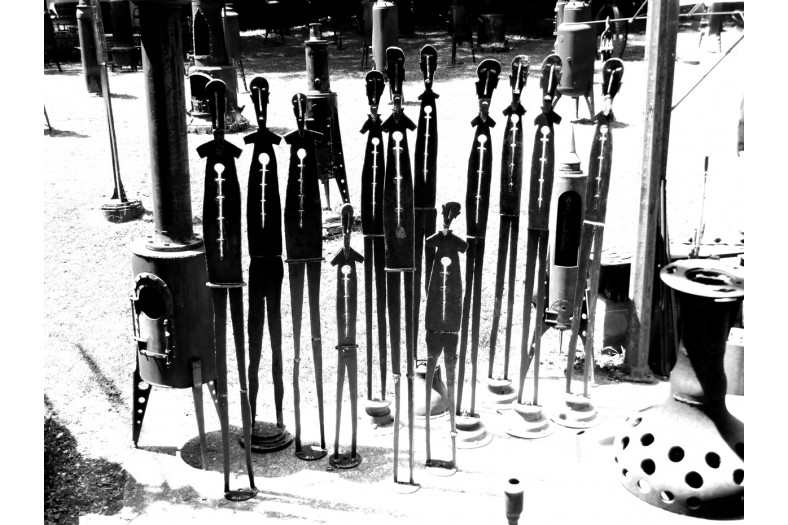
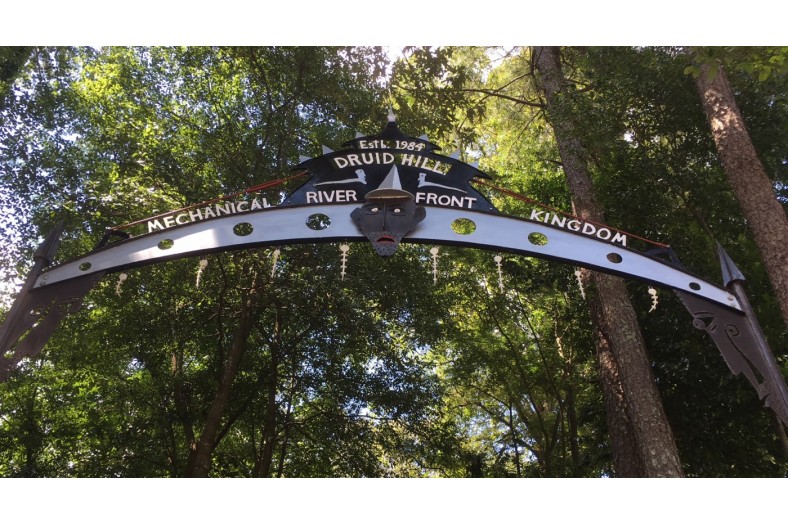
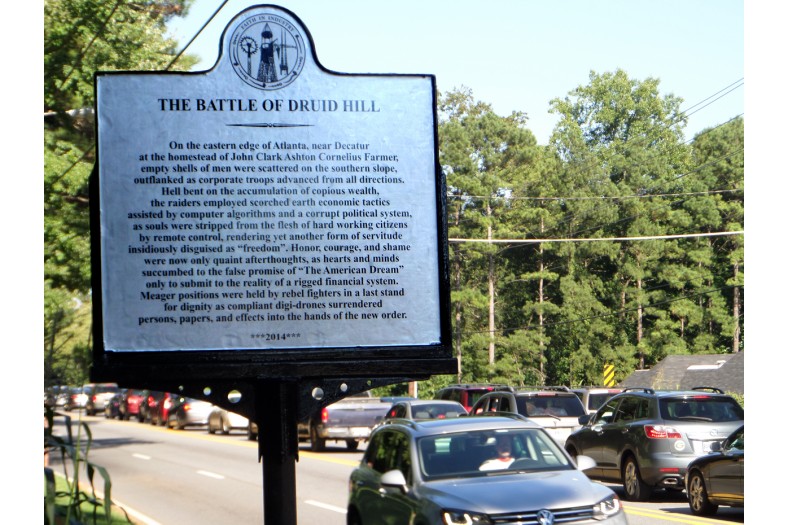
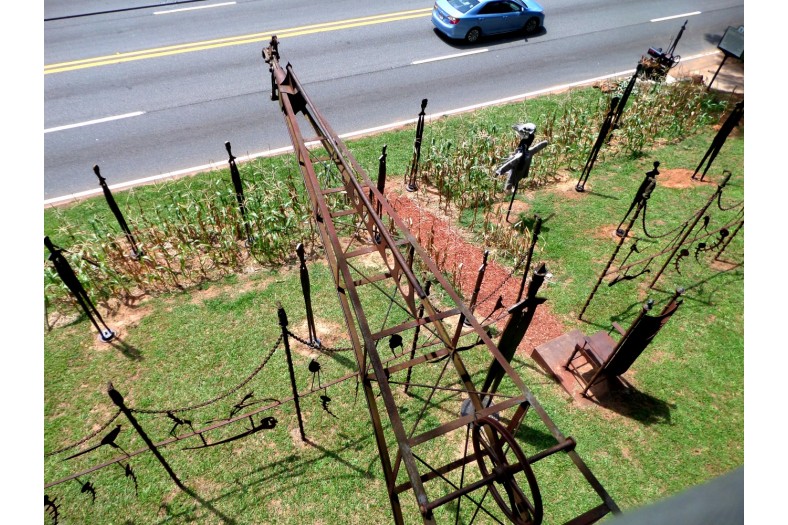
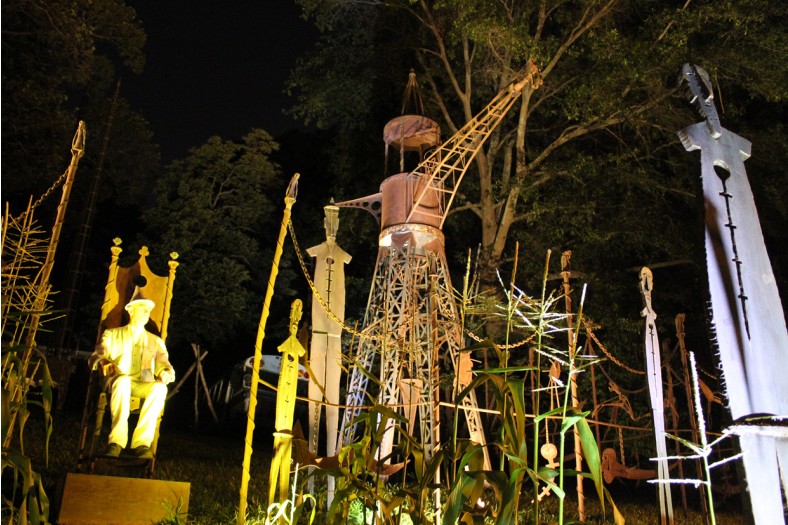
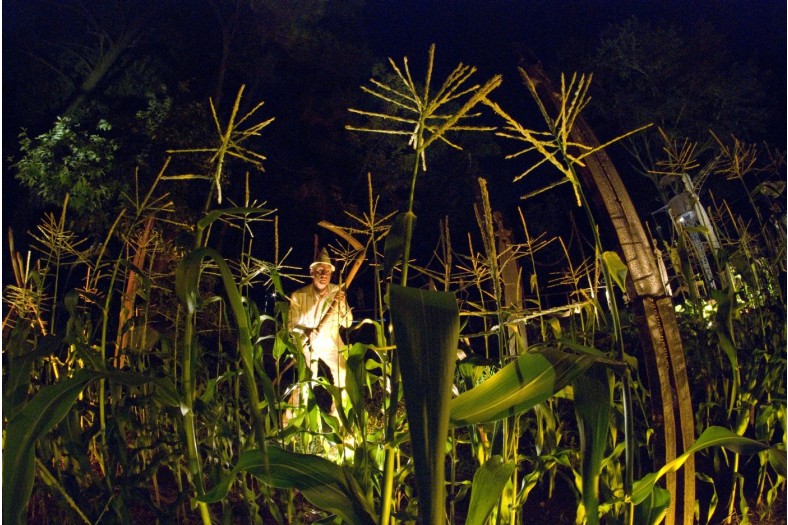
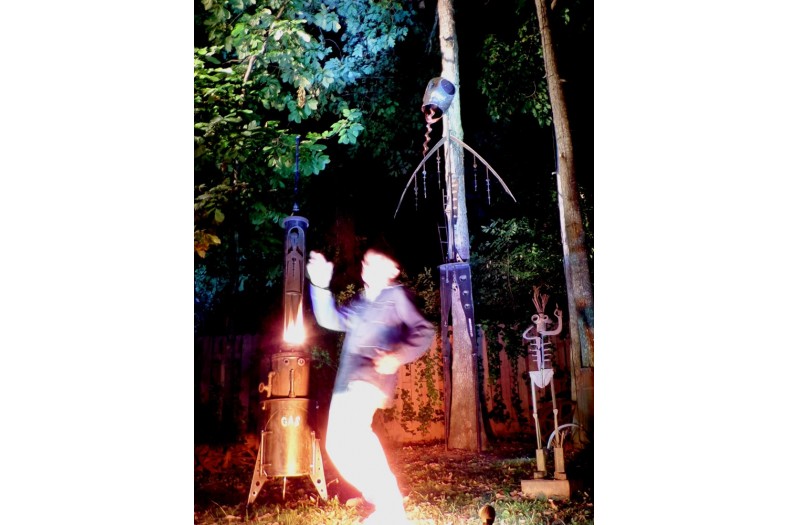
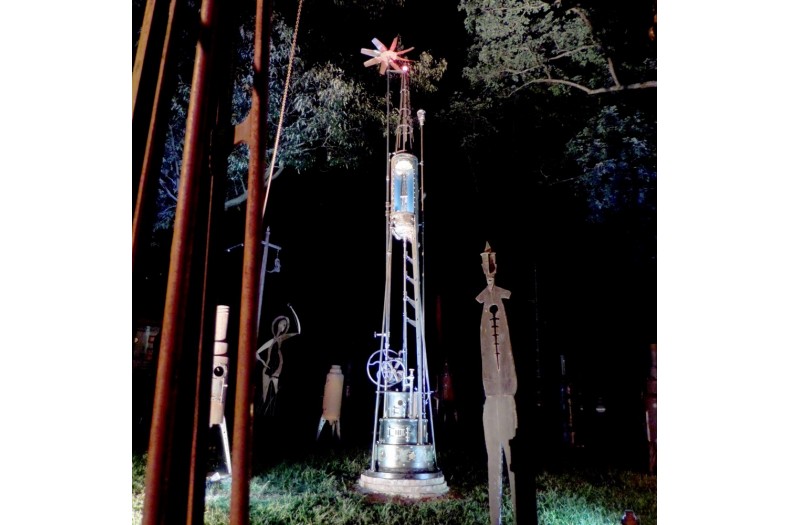
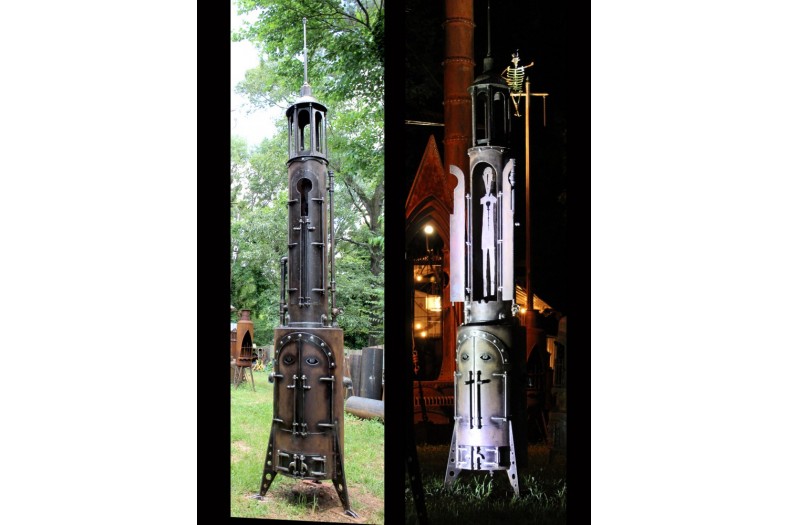
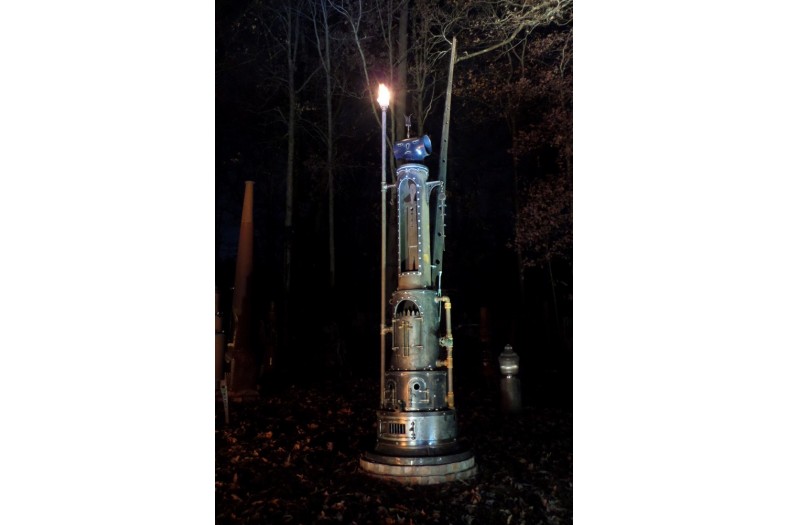
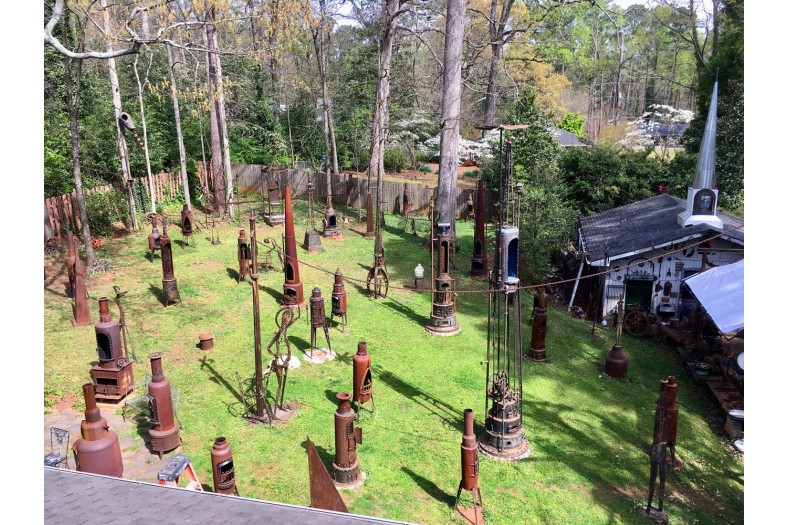
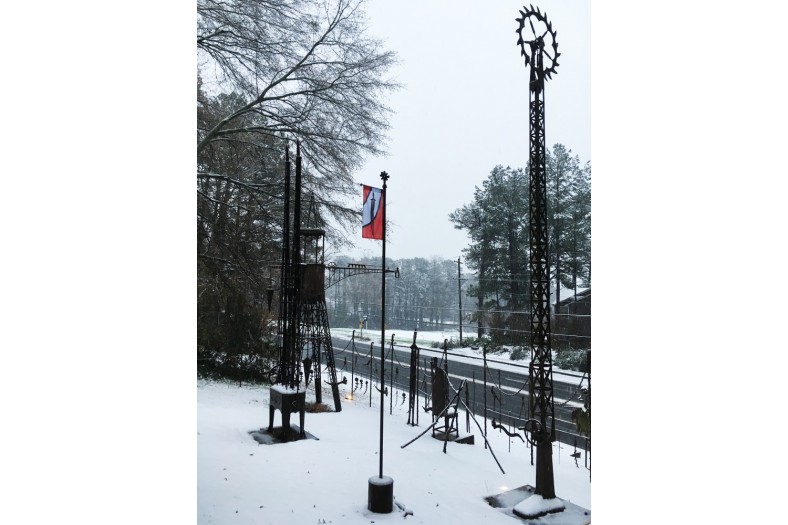
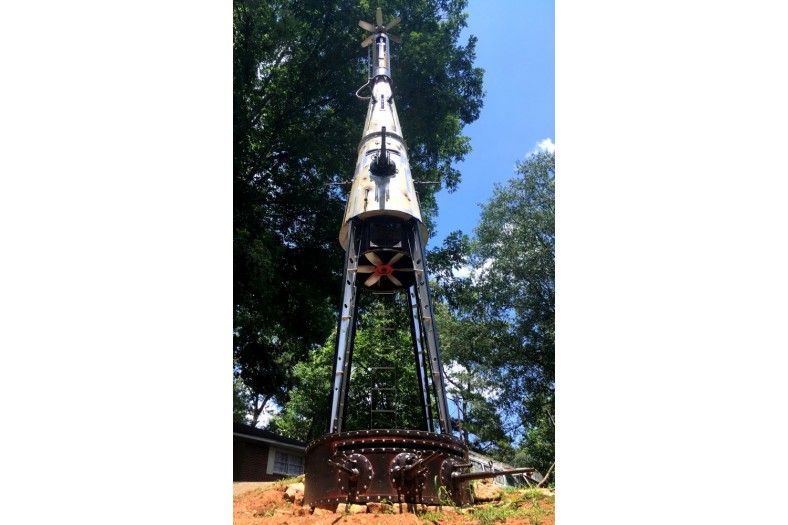
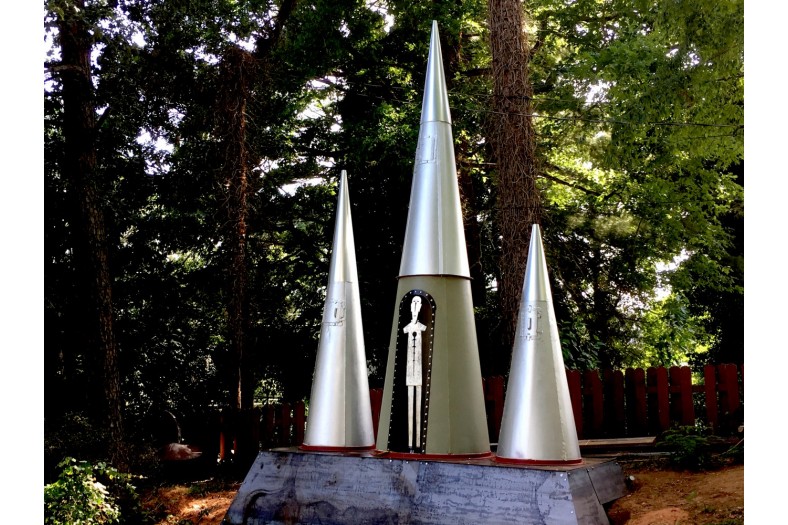
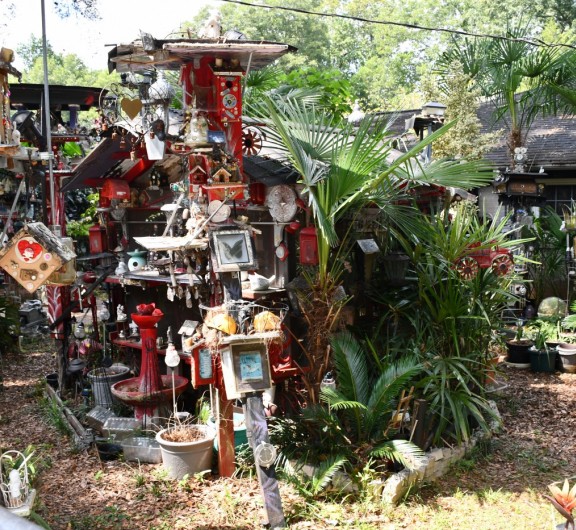
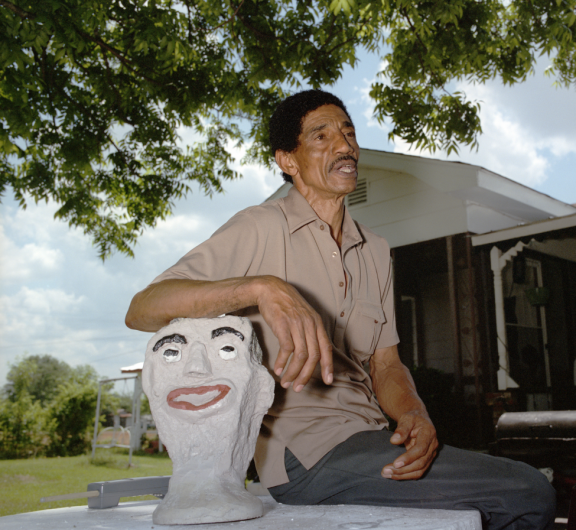
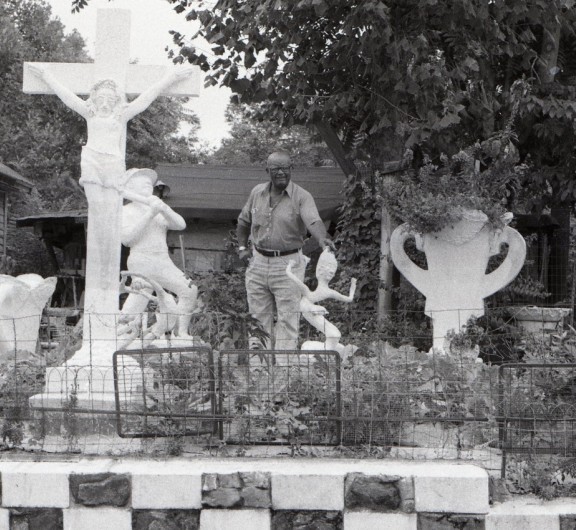
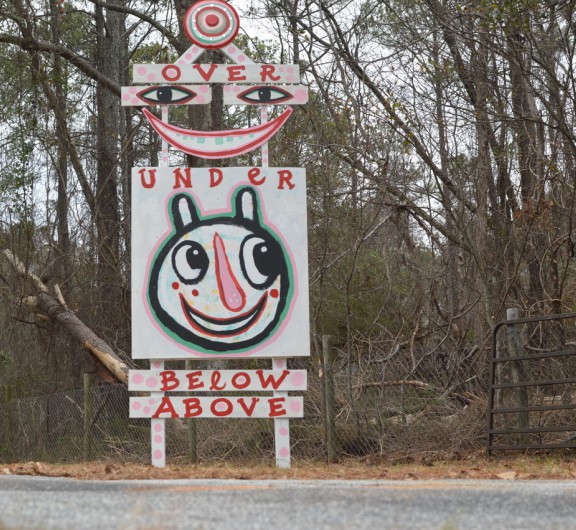
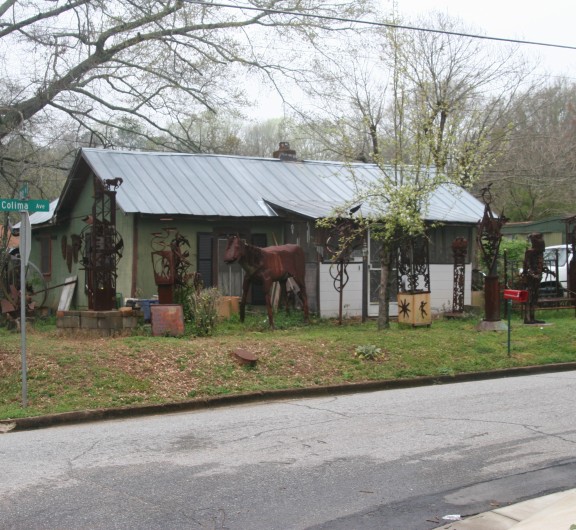
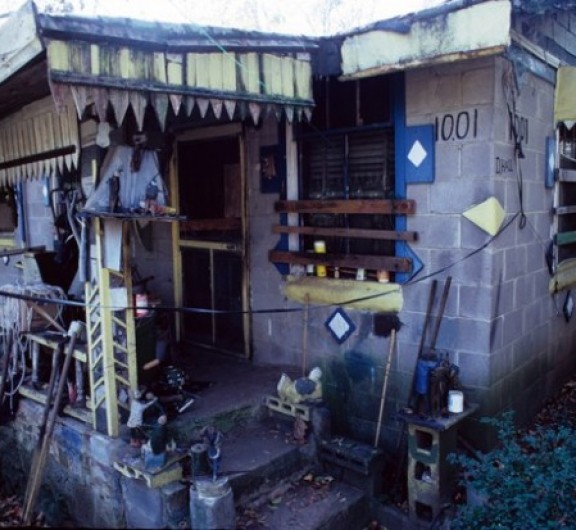

Post your comment
Comments
No one has commented on this page yet.